By Lori Cox, AICP
WELL, WE CAN ALL AGREE THAT THE PREVIOUS FEW YEARS HAVE BEEN, AHEM, CHALLENGING AND REVEALING.
The unimaginable blended into the inconceivable between the global health pandemic fundamentally disrupting the way we operate on every level and the circus sideshow bipartisan politics seems to have become. All the while, within our work, we’re trying our best to address the mounting social and environmental crises while also holding ourselves together. Many of us may be asking what we can do to support our communities within our professions while also supporting ourselves as people.
continued on page 4
FLORIDA PLANNING A publication of the Florida Chapter of the American Planning Association The Florida Chapter of APA provides statewide leadership in the development of sustainable communities by advocating excellence in planning, providing professional development for its members, and working to protect and enhance the natural and built environments. OTHER FEATURES President’s Message - p. 3 Member Q&A - p. 23 APA Working for You - p. 24 Planners on the Move - p. 25 Consultants Directory - p. 27 Events - back page Nervous About Applying for Grants? Don't be, Say Our Experts! 9 6 Working While Caregiving for Parent or Spouse 11 Called to a Deposition or Court? Here are a Few Tips 13 How to Submit an InclusionOriented Florida Planning Conference Proposal 14 New Guidelines and Resources for FAICP Nominations 15 EDI Partner Spotlight: Plan Hillsborough 17 Chapter CPAT Visits East Palatka 19 A Message From the New Executive Director Stefanie Svisco 21 Florida Planning Conference 2023: Call for Presentations ALSO IN THIS ISSUE
florida.planning.org SKILL BUILDING - Winter 2023 Compassion MORE TECHNICAL
SKILLS AREN’T THE WAY INTO 2023
We Want to See How We Can, and Should, Cultivate in the Communities We Are Planning
[APA FLORIDA] KEY CONTACTS - EXECUTIVE COMMITTEE
Name
APA Florida Executive Committee
President Whit Blanton, FAICP
Immediate Past President Wiatt Bowers, AICP
President-Elect Allara Mills Gutcher, AICP
Treasure Coast Section Kori Benton, AICP
VP-Professional Development Henry Bittaker, FAICP
VP Continuing Education Lara Bouck, AICP, PE
San Felasco Section Juan Castillo
Phone E-mail
727-464-8712 president@floridaplanning.org
904-363-8488 pastpresident@floridaplanning.org fx
850-319-9180 presidentelect@floridaplanning.org
727-462-2518 treasurecoast@floridaplanning.org
561-523-0687 profdevelopment@floridaplanning.org
407-481-5672 certmaintenance@floridaplanning.org f
352-393-8698 sanfelasco@floridaplanning.org
Sun Coast Section Katrina Corcoran, AICP suncoast@floridaplanning.org
VP Membership/Outreach Ennis Davis, AICP
Gold Coast Section Fabian De La Espriella, AICP
VP Communications Amy Elmore, AICP
Capital Area Section Macy Falcon, AICP
Promised Lands Section Jason Green, AICP
Broward Section Daniel Keester-O'Mills, AICP
University Liaison Van Linkous, Ph.D.
Heart of Florida Section Laura Lockwood-Herrscher, AICP, CPM
VP Conference Services Eddie Ng, AICP
Orlando Metro Section Luis Nieves-Ruiz, FAICP
VP Section Affairs Ali Palmer
Atlantic Coast Section Brad Parrish, AICP
Secretary Jill Quigley, AICP
Treasurer John Roach, AICP
904-396-5727 membership@floridaplanning.org
786-245-5202 goldcoast@floridaplanning.org
813-273-3774 communications@floridaplanning.org
850-380-2812 capitalarea@floridaplanning.org
863-255-3212 promisedlands@floridaplanning.org
954-786-5541 broward@floridaplanning.org
813-503-2797 university@floridaplanning.org
863-860-5105 heartoffl@floridaplanning.org
401-524-3263 conferencesvcs@floridaplanning.org
407-245-0300 orlandometro@floridaplanning.org
850-553-3528 sectionaffairs@floridaplanning.org
321-567-3776 atlanticcoast@floridaplanning.org
954-641-5680 secretary@floridaplanning.org
561-822-1448 treasurer@floridaplanning.org
407-839-4006 epg@floridaplanning.org af First Coast Section Ray Spofford, AICP
EPG Representative Jarrell Smith
Student Representative Sabrina Viteri
Emerald Coast Section Randy Woodruff, AICP
Executive Director Stefanie Svisco
Ad. Assistant/Bookkeeper Suzie Gray
Communications Manager Patti Shea
Legislative Representative Lester Abberger
Graphic Design (Consultant) Summer Taylor
904-265-3189 firstcoast@floridaplanning.org
407-488-6971 students@floridaplanning.org
850-689-7347 emeraldcoast@floridaplanning.org
850-201-3272 ssvisco@floridaplanning.org
850-201-3272 sgray@floridaplanning.org
850-201-3272 pshea@floridaplanning.org
850-524-2779 lesterabberger@gmail.com
727-452-2416 summer@exaktmarketing.com
All other inquiries, contact APA Florida at 850-201-3272 or e-mail fapa@floridaplanning.org
2 Winter 2023 / Florida Planning
PRESIDENT’S MESSAGE
DR. KING AND A LEGACY OF SOCIAL JUSTICE
Reflecting on the state of our politics and policy on the recent Martin Luther King, Jr. national holiday is a reminder that the work of social justice is never finished. Far from being a colorblind society, we need to recognize that generations of people and public policies have created conditions where inequality, generational poverty, and marginalized voices persist in our society. Dr. King used the power of civil disobedience to draw attention to oppression and inequities, and push for change in the legal system and public policy arena. He was called a communist and a socialist, he was jailed, and his home was bombed. He paid the ultimate sacrifice for his actions. But his legacy of love, respect, and speaking truth still stand as a guide for us to seek out injustice and work for change.
We’re still facing those challenges Dr. King addressed more than 50 years later, and it sometimes feels like it’s becoming more difficult to acknowledge them. Efforts are underway to remove or stifle activities addressing equity, diversity, and inclusion in our government, education, libraries, and even private business. The loudest voices are amplified through politics and social media, making our political and cultural differences burn hotter. But we have more in common with each other than our party politics or amplified opinions indicate. As planners, we build trust and respect for the planning process and its outcomes by tapping into our shared values and really understanding what’s preventing people from realizing their individual and their community’s potential.
The AICP Code of Ethics is clear in its aspirational principles and code of conduct that we have a special concern for the long-range consequences of past and present actions, and we seek social justice by expanding choice and opportunity. We also must promote excellence in design in our work to meet the needs of everyone in our communities. Let’s lean in on those principles in our work and as a profession, and not be intimidated by threats or those fearful of change.
PUBLIC POLICY WORKSHOP
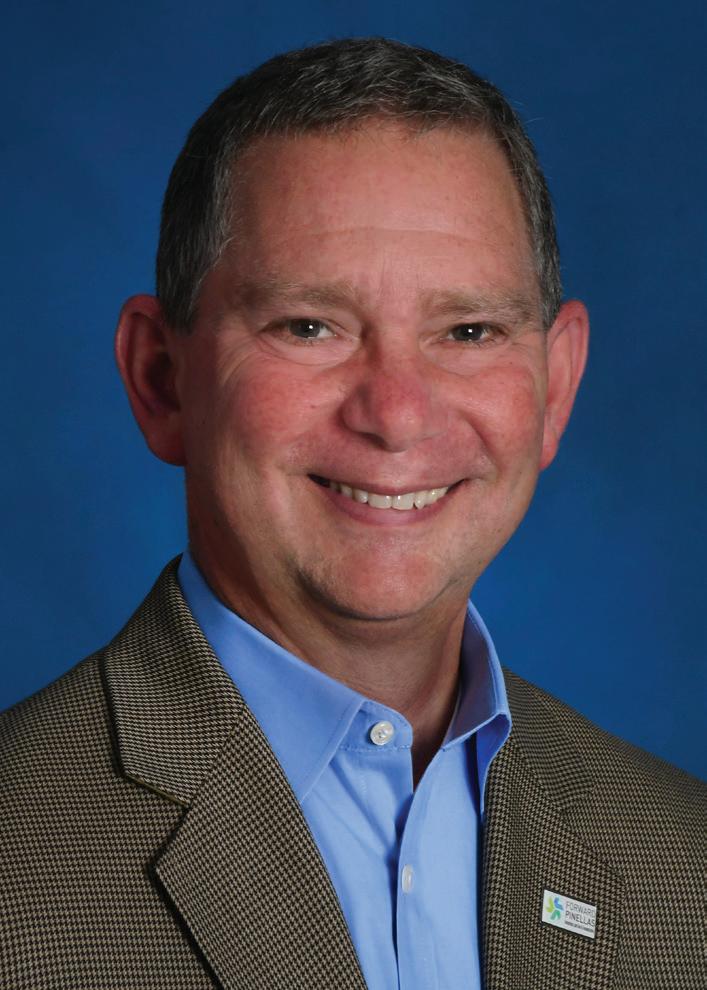
A final reminder that the 21st Annual APA Florida Public Policy Workshop is fast approaching on the afternoon of Feb. 23 and morning of Feb. 24. Registration closes on the Feb. 20 and it is shaping up as a distinctive experience. The virtual event features a variety of perspectives on the policies affecting our work across Florida, including topics on zoning reform for housing affordability, the state’s economic and demographic trends, the linkage of big business and public policy from investigative reporter Jason Garcia, planning in the courts, and the prospects of the coming Legislative Session as we seek to advance our legislative priorities. I encourage everyone to participate, learn what’s happening, and earn some CM credits.
WELCOME STEFANIE SVISCO!
As I take on the role of APA Florida Chapter president for the next two years, I’ll be joined in this adventure by our new executive director Stefanie Svisco. We’ll both be learning and growing in our roles together, trying our best to fulfill the big shoes of previous chapter presidents and former executive director Alex Magee. Stefanie has an infectious enthusiasm and a friendly demeanor that augments her organizational skills. I’m excited to be working with her and each of our APA staff members, along with the chapter and section leaders who serve on our Executive Committee. It takes a village to run APA Florida and I’m grateful to be supported by a tremendous team.
Whit Blanton FAICP
Winter 2023 / Florida Planning 3
APA Florida President
But we have more in common with each other than our party politics or amplified opinions indicate. As planners, we build trust and respect for the planning process and its outcomes by tapping into our shared values and really understanding what’s preventing people from realizing their individual and their community’s potential.
To toot our horn, planners have no lack of technical skills as there is no shortage of technical skills required for the variety of roles we play and services we provide. Hard skills such as data analysis, problem-solving, and technology-based research are taught consistently through planning education programs. These skills are useful for understanding and responding to the challenges of modern urban planning. Technological innovations, which were formerly the stuff of science fiction, are coming to life that are helping us do our jobs in new ways, such as 3-D printing, machine learning, and artificial intelligence. While we have an interest in learning how to utilize these technological solutions, developing our soft skills is ever more important as we continue the work of creating great communities while also supporting communities to truly heal.
Many of us may agree that communication, negotiation, and teamwork are essential soft skills in everything we do. While these skills may not be developed consistently across the profession, many planners learn these skills quickly on the job in more of a “sink or swim” model. As we navigate with and within the post-traumatic pandemic stress, however, the one most transformative soft skill we could be nurturing is compassion. Compassion isn’t a skill as much as it’s an awareness, mindset, and motivation to “increase care and reduce suffering”. Further, compassion, according to Lyles, White, and Lavelle (2018), “can be intentionally cultivated, with potentially transformative impacts at the individual, organizational, and process levels.”
This powerful concept stands with and supports the profession’s great work on equity, inclusion, sustainability, and social justice. A core theme that crosses religious and scientific disciplines is that compassion promotes health and well-being at the individual, system, and community levels through deep reflection on and empathy for the roots of feelings of anger, frustration, anxiety, and depression. While some definitions of compassion hold this as solely an act of service to others, holding compassion for ourselves and the roots of our own feelings of anger, frustration, anxiety, and depression are what make
us truly able to understand those of others. For strongly held values and norms and long-enduring injustices, compassion is the bridge to creating safety for fundamental transformation to happen.
The following are 5 suggested strategies for cultivating compassion in community planning:
1) START WITH YOURSELF: The first step starts with trying to understand your own biases and assumptions and practice checking in with them before, during, and after engaging with others.
2) LISTEN WITH AN OPEN HEART: Listen to the perspectives and opinions of others without judgment; everyone has a unique viewpoint and experiences, and it is important to be available and open to hearing different perspectives.
3) REACH OUT: Take the time to reach out to members of the community who may not have a voice or platform, and make sure their needs are being addressed in the planning process.
4) SHOW RESPECT: Treat all members of the community with respect and dignity. This means taking time to learn about different cultures and beliefs and doing your best to be inclusive.
5) WORK TOGETHER: Work with other members of the community to create mutually beneficial plans. Collaborate and compromise in order to create the best outcomes for everyone.
In this process, please remember that both technical and soft skills require practice to develop. We are probably going to screw it up here and there as we figure out our way. We cannot, however, lean solely on technical acumen to address the very real emotional and spiritual needs that we and those we serve require in these most interesting times.
4 Winter 2023 / Florida Planning [CULTIVATE]
from
COMPASSION continued
cover
Lori Cox is a Senior Planner for RK&K in Orlando. She can be reached at lcox@rkk.com.

Winter 2023 / Florida Planning 5
CAREGIVING
FOR PARENT OR SPOUSE
By Patti Shea, MPP
Rosalynn Carter says there are four types of people in the world: those who have been caregivers, those who are caregivers, those who will be caregivers, and those who will need caregivers.
According to AARP, there are 48 million Americans who annually provide $470 billion in unpaid care to an adult family member or friend. I was one of those 48 million for 11 ½ years when I was a full-time caregiver for my dad, who lived with Alzheimer’s and COPD, and my mom, who lived with rheumatoid arthritis and non-essential tremors left over from a stroke.
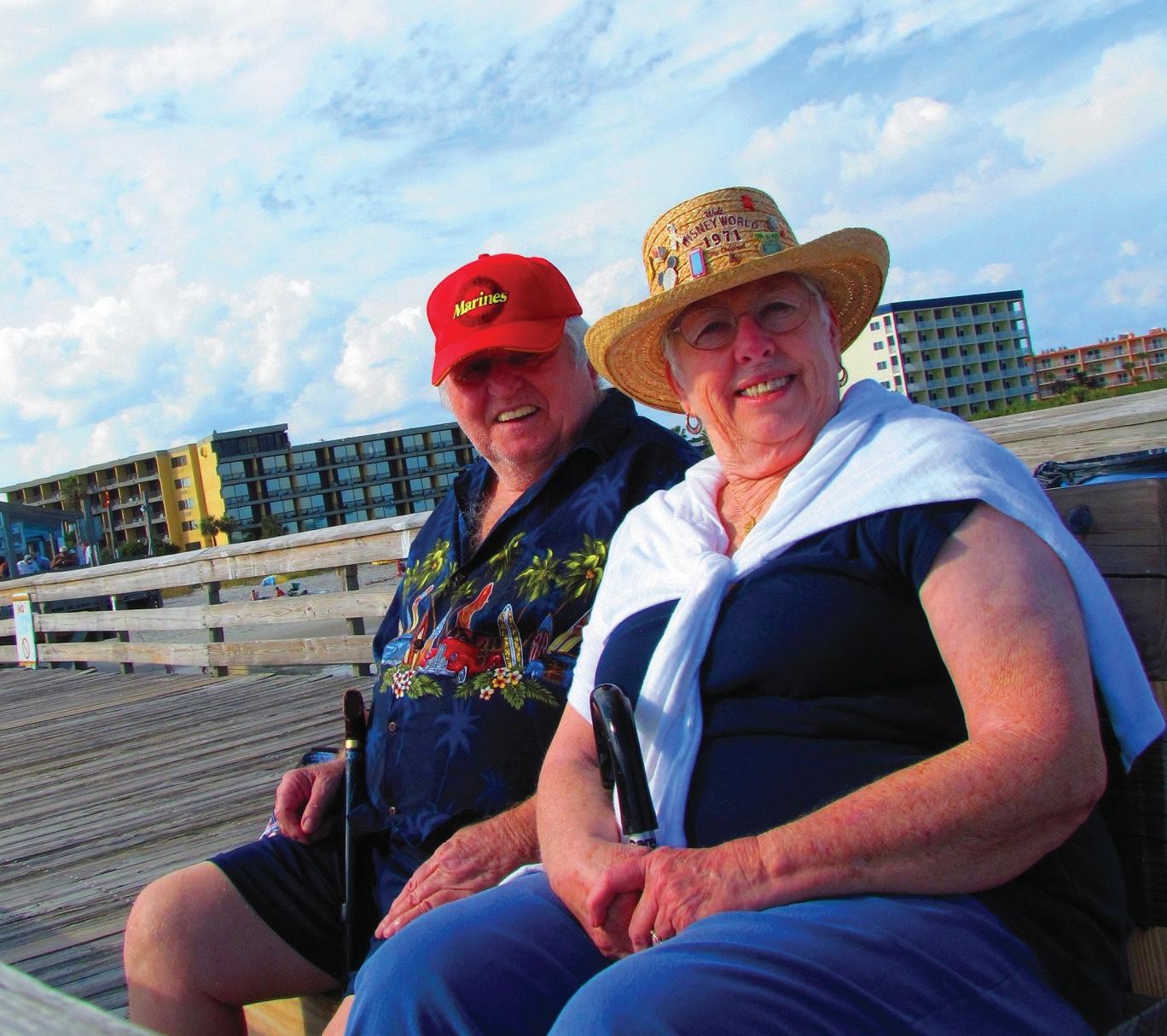

I often tell folks that I had two full-time jobs: my job job and my caregiving job. For more than a decade, I worked roughly 100 hours a week at my two jobs. I learned a lot during this time about how to be efficient and organized at work (and at home). Here are some of my top work tips to help those who may find themselves in a similar circumstance:
Recap meetings to CYA. It takes extra time to do it, but after a meeting with numerous tasks as-
continued on page 7
6 Winter 2023 / Florida Planning
WORKING WHILE
Patti's parents, Jim and Kathy, soaking up some sun during an impromptu day trip to Cocoa Beach in 2014.
[CAREGIVING] FOR PARENT OR SPOUSE
continued from page 6
signed to you, send a recap to your supervisor, or project manager, about your deliverables and deadlines. Again, it takes time, but you want to ensure you have these items electronically recorded so that you (and your manager) know what is expected of you. Doing this can prevent you from seeing the underside of a bus because you have receipts.


Calendar your time. Carving out time on your calendar, including mom’s doctor’s appointment, and giving your team access to your calendar, provides transparency to your work. I would give 30-minute increments to daily tasks, then for longer tasks, I would create larger time blocks and explain what I’m doing during this time. If mom had an appointment, I marked myself out of the office, said where I was, and left my mobile number. Transparency can help and protect you. If my boss or client opened my calendar and saw when I was working or at a doctor’s appointment, there were a lot fewer questions. (I color-coded my time blocks, but you don’t have to get that fancy!) In fact, the next time I spoke to them, they would ask if mom/dad were all right.
Smart-phone-it-in. When necessary, I was available via the iPhone Teams app. My manager and clients could be in contact





with me, even when I was at a neurology appointment with dad. My team knew I was with my father, but I could answer a quick question. They were thankful (and apologetic for bothering me), and I was able to fulfill my duty while away from my desk. Being flexible while caregiving is not easy, so do it when you can.
Find an ally. This is not a soft or hard skill, per se, but finding an ally who is also caregiving for a parent or spouse can help keep you sane during the crazy times at work. It is nice to talk to someone in the same foxhole you are in. Often, caregivers don’t talk about their home lives at work because they fear others may watch them to see if they’re pulling their weight on the team. Sadly, this happens. This is why you need an ally. (FYI, signing up for FMLA through your HR is a very smart move.) If your employer has a caregiver employee resource group, join it or start one!
I have many more tips for work and at home (Lemon PineSol is the best to get rid of the stench of urine in sheets), so please contact me at the email below if you have questions. I’d love to hear about your caregiving journey.



Patti is the Communications Manager for APA Florida. She can be reached at pshea@floridaplanning.org.

Winter 2023 / Florida Planning 7
S trengthening communities and creating spaces for more than 75 years. Fort Lauderdale | Jacksonville | Miami | Tampa www.benesch.com VALUE FOCUSE D. COMMUNIT Y MINDED. QUALIT Y DRIVEN. 46 Offices | 20 States | 1 Team
PLANNING STRONGER COMMUNITIES
For nearly a century, we’ve been developing creative and thoughtful solutions to strengthen communities and improve our quality of life. We adapt our work processes to fit the unique demands of each project using a collaborative, friendly style. The result? Solutions you can stand behind.
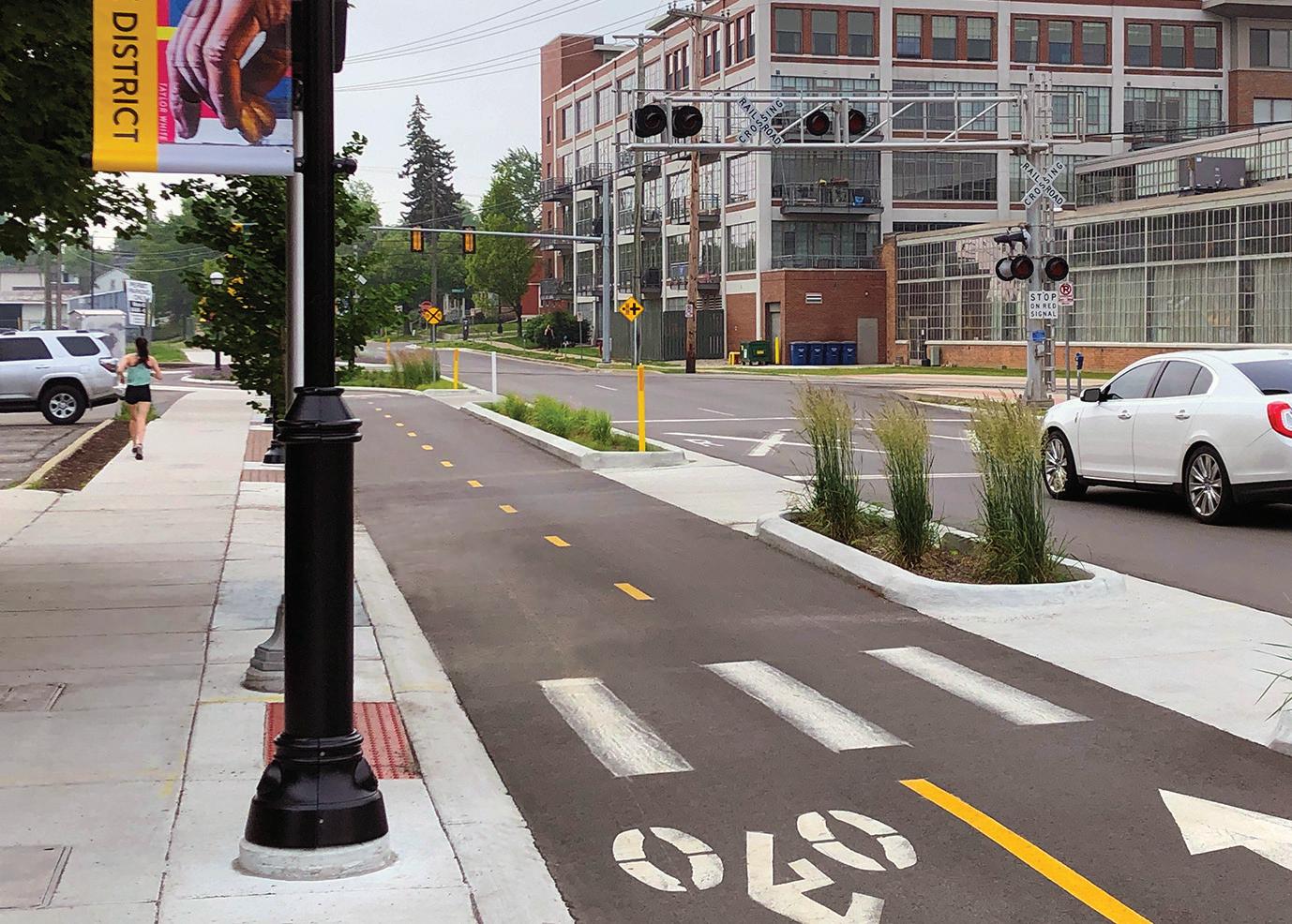
8 Winter 2023 / Florida Planning 800.482.2864 www.wadetrim.com
Nervous About Applying for Grants?

Don’t Be, Say Our Experts!
By Alyssa Goldberg, Catherine Hays, Jocelyn Pritchett, and Amber Simmons
We asked a few grant experts to give us their top three tips on grant writing and grant management.
Submitting grant applications can be hard. Many of them require a lot of leg work before submission, leaving the applicant nervous and full of worry after. We hope these tips below may be both useful for completing the grant application, and during the time when applications are getting reviewed, and the nerves are kicking in:
TOP
TIPS FOR GRANT WRITING:
• Assemble a great team: At a minimum, experts in content, proofing, and research will make for a better application.
• Be Concise: More words do not equal a better application and many applications have word or page limits.
• Details: Pay attention to what the RFP is asking for and then make sure you answer their questions and deliver based on what they want, not what you need.
• Don’t just “check the box.” When completing grant applications, it’s very important to not only answer the questions being asked, but also explain why. Details are important, especially ones that drive home the need for project funding. For example, when the application says, “Describe the purpose of this project”, the answer should not be limited to “construct a sidewalk to close a gap in the network”, but rather “construct a sidewalk to close a gap in the network and provide connections between the vulnerable community and the elementary school and park.” The more details, the better. Submittals that go beyond checking the box will always surpass submittals that provide minimal details and hit the baseline for applications.
• Be concise, but specific. Oftentimes, grant applications limit the number of words or characters for various sections of the applications. This creates a unique challenge – how do we be as specific as
continued on page 10
Winter 2023 / Florida Planning 9
Tips from Alyssa Goldberg, Multimodal Transportation Manager for EXP
3
Tips from Amber Simmons, Grants and Budget Coordinator for Plan Hillsborough
[APPLYING FOR GRANTS] EXPERT ADVICE
continued from page 9
possible, but also concise and maintain the word or character limit? The answer is simple: phase in the text. What I mean by this, is to take a first stab at the question, but ignore the word and character limit. Maybe this means typing it up in a Word document and copying it into the application, or maybe typing right in the application, but throw all your ideas onto that single page. Be as detailed as possible! After the meat is in one place, put on your reviewer hat and chop the text up to make it fit the text limits. This process will help ensure that the specific project information is included within the text limit.
• Show examples of success. Reviewers of grant applications want to know that the applicant knows the process and is capable to carry through the plans after being awarded the funds. Including examples of other grants awarded and successfully implemented projects will show the reviewer that there will be no downtime once the projects have been awarded funds and that the implementation will be seamless. When reviewers see that money has been granted, and the projects have been completed, it can push your application to the top of the pile, especially when compared to applicants that have not been awarded funding.
• Sit back and relax! You did the best you could on the submittal, and now it’s just time to wait (and hopefully win some funding).”
Tips from Catherine Hays, Grants Supervisor for the City of Tampa
• DETAILS! Read, re-read, read again, and read once more the Notice of Funding Opportunity. Attention to detail is most important in ensuring you respond to all requirements of the application, including required attachments and forms.
• Checklists: Per the above, make a checklist of the application requirements such as Narrative, Budget, Standard Forms, Letter of Commitment or Support, etc. Prior to final submission, review your checklist to ensure you have all the required documentation.
• Calendars: Many grant applications have a short window to prepare and submit the application. Work backward from the application deadline and set internal due dates for meetings, drafts, budget preparation, and obtaining approvals and letters of support.
• Budget Considerations: Ensure you have the proper match funding, if required, and always consider outwards years, post grant funding, of costs for maintenance, insurance, upkeep, repairs, etc. which will be borne by your entity and need to be included in future budgeting.
Tips from Jocelyn Pritchett, Chief Engineer & Project Manager for Patel, Greene, & Associates, LLC
• Visit the project site before you write. Spending time in the project area will help you pick up that much needed “feel” for the area that can help deliver your story.
• Write with everyday people in mind as your readers: your kids’ teacher, a neighbor, or a friend from high school. Professionals and experts may help make the grant selections, but they are made public and the selections must be justifiable to the general public.
• Support your statements with references: project reports, studies, and research.
TOP 3 TIPS FOR GRANT MANAGEMENT:
Tips from Amber Simmons, Grants and Budget Coordinator for Plan Hillsborough
• Have a great team: Ensure you have a good team to help with the reporting requirements explaining content and metrics – grant managers are not usually the content expert, so good communication with your team is essential to get the content and data needed in a timely manner and set realistic timelines so your team isn’t rushed.
• Find a system that works for you: It doesn’t always need to be elaborate. A spreadsheet and calendar can work quite well.
• Be organized: Create systems for organizing and standardizing reports and milestones.
Tips from Catherine Hays, Grants Supervisor for the City of Tampa
• Reports: Use a calendar or Outlook reminder for reporting deadlines. Give yourself a week or so notice in advance of the deadline to prepare the report information.
• Monitor your budget: Keep a budget tracker (it could even be Excel) to track your grant spending.
• Procurement: If it is a federal grant, ensure the required clauses, conditions, and requirements are passed through in your bid documents and subrecipient and contract agreements.
• Policies and Procedures: If not already established, ensure you have grants policies and procedures in place and regularly update them to ensure compliance.
10 Winter 2023 / Florida Planning
Called to a Deposition or Court?
Katie Berkey, Esq., AICP, and Susan Swift, AICP
When a planner is called to serve as a witness, it is natural to be anxious. However, keeping in mind these tips and best practices will help you be better prepared and best convey evidence and testimony.
Always keep orderly files. Do not wait to be called to a deposition or court to organize your case files. Do this daily as a matter of course. It is easier, and less stressful, to tell your story with readily available information, and you will not give the opposing attorney the opportunity to grill you over missing documents or timelines, sidetracking the real issue at hand.
Prepare and prepare some more. Discuss attorney-client and work-product privilege doctrines with your attorney or the attorney for your client. Attorney-client privilege generally does not extend to witnesses; however, the workproduct privilege doctrine may provide certain protections for your trial preparation materials. Refamiliarize yourself with the American Institute of Certified Planners Code of Ethics and Professional Conduct (e.g., the duty to exercise
honest and independent professional judgment, provide accurate and clear information on planning issues with integrity, comment on the work and views of other professionals in a fair and professional manner, avoid a conflict of interest, and be adequately prepared and able to render thorough and diligent services).
Be mindful of what your key duties and responsibilities are as a witness in this case. Refamiliarize yourself with your work experience, prior publications, and academic and professional credentials. Judiciously (pun intended) review your prior public hearing testimony, written reports, reference materials utilized when preparing your findings, and all other relevant applicable documents, as well as the facts of the case, to prepare your testimony.
Practice communicating complex subjects clearly and succinctly so they can be more readily digested by lay people like jurors. Include illustrations when they can help make your argument clearer. In terms of organizing the evidence and your thoughts, number each paragraph of written findings so that they can be more easily referred to when providing testimony. Have separately bound appendices with dividers and page numbers. If your evidence is over 1,500 words long, including a summary that can be read aloud into the record is recommended.
When preparing for cross-examination, it is important to be aware of the weakest aspects of your case and be prepared to answer related questions. The attorney will be able to help you to draw out these aspects of the case, but the attorney will not tell you what answer to give. To the extent possible, do a dress rehearsal.
Demeanor and presentation are key. Dress professionally and appropriately. Avoid wearing jewelry or accessories that may be distracting. Keep hand motions to a minimum, unless helpful for demonstration. Avoid distracting habits, like fidgeting or nail biting. Maintain eye contact and speak at an even and consistent volume. Pause and think about each question before answering. As a witness, you should provide unbiased opinions as to matters within your expertise and state the material

Winter 2023 / Florida Planning 11
HERE ARE A FEW TIPS
12
continued on page
facts or assumptions on which your opinions are based. This is noteworthy as bias can be grounds for disqualifying a witness. Aim to avoid testifying in terms of absolutes (e.g., making statements like “always,” “in all cases,” or “every time”). This way, you do not close a certain line of questioning or open yourself up to possible disqualification later.


The opposing attorney’s objective on cross-examination is to weaken or undermine your testimony and may frame “yes” or “no” questions in a manner to achieve that goal. If a question is difficult to answer with a “yes” or “no,” it is acceptable for you to advise that you cannot provide such a simple answer in that context. This allows you to answer the question as accurately as possible, without the appearance that you are unwilling to a difficult question. If you are steered into answering a question you are not com-
fortable answering, advise if the question falls outside of your expertise. Ask your client’s attorney, or your attorney, the difference between the factual issues that you are there to help a jury or judge decide and the legal merits of the case. “I don’t know” may also be a perfectly acceptable answer if it is the truth, unless the question relates to the basis for your professional opinion.
Katie Berkey, Esq., AICP, is a shareholder attorney, Florida Bar Board Certified Specialist in City, County, and Local Government Law, and certified Professional Planner with Becker & Poliakoff, P.A. in Fort Myers, Fla. She can be reached at kberkey@beckerlawyers.com



Susan Swift, AICP is a certified Professional Planner and Director of Planning for BBE-Boggs Engineering LLC based in Plant City, Fla. She can be reached at sswift@boggseng.com.

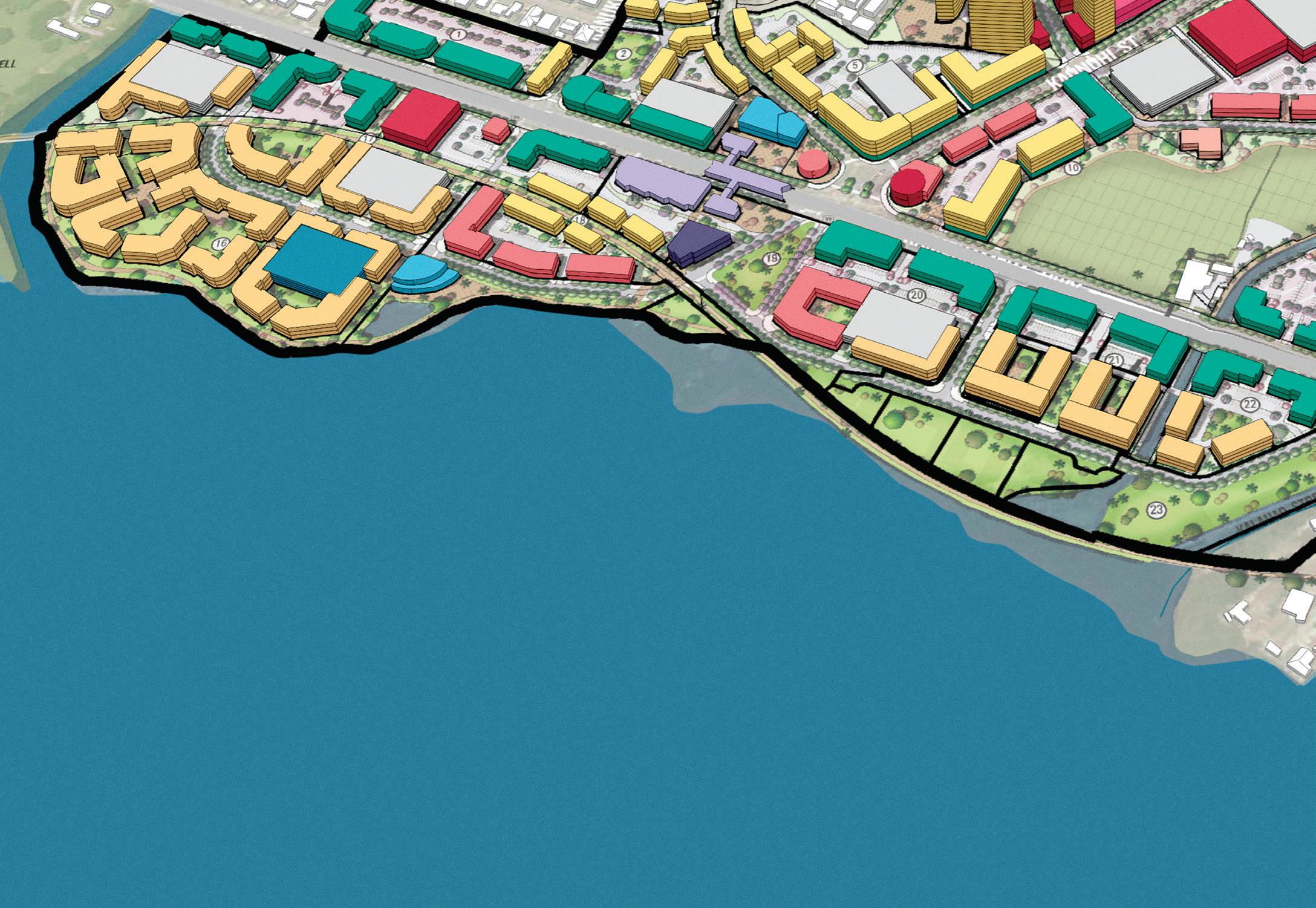
12 Winter 2023 / Florida Planning
[DEPOSITION OR COURT] TIPS continued from page 11 Use geographic information system (GIS) technology to determine how, where, and when your designs can have the greatest impact to improve quality of life. Have Questions? Email us at planningteam@esri.com Learn more, visit esri.com/APA. Prioritize the Human Element in Designing Your Neighborhood Copyright © 2022 Esri. All rights reserved.
How to Submit an Inclusion-Oriented FLORIDA PLANNING CONFERENCE PROPOSAL
By Bob Cambric
Positive tenets of our profession are that it’s evolving, propelled by innovation and replicable approaches to improving the lives of residents we serve and their communities. Florida is the third most populous state, and the planning challenges and opportunities throughout are myriad and diverse.
The Florida Planning Conference is an opportunity to share our stories of success and lessons learned. An inclusion-oriented conference proposal should further and honor the AICP Code of Ethics, which states we should:
Facilitate the exchange of ideas and ensure that people have the opportunity for meaningful, timely, and informed participation in the development of plans and programs that may affect them. Participation should be broad enough to include those who lack formal organization or influence, especially underrepresented communities and marginalized people. Attention and resources should be given to issues of equity, diversity, and inclusion and should reflect the diversity of the community.
When developing your conference proposal, you should consider the following:
• What story will your panel tell, why does the story need to be told, how will the story be told, and what will attendees take away?
• Broadly speaking, the story can be about planning activities being implemented for equity, diversity, and inclusion constituents or planning programs EDI constituents need but are not being provided.
FREE WEBINAR ON HOW TO PITCH THE IDEAL PANEL PROPOSAL
Join us at noon EDT on March 16 for a webinar that will review the best practices on submitting a FPC23 session proposal. Register here
• Your story also can be how programs are addressing or need to address the professional development needs of planners who are members of marginalized demographics.

You also should address how to tell your story with a diverse set of presenters reflecting factors such as constituency of the community to be discussed, gender, national origin, race, disability status, age (emerging and mature planners), and/or LGBTQ+ individuals. If needed, look for speakers beyond your personal network and support them with the necessary resources, training, and other support. APA Florida’s Equity, Diversity, and Inclusion Committee is available to assist you. For more information on the EDI Committee click here There are numerous other resources to help you frame the story you would like to share at the conference, including:
• APA’s Planning for Planning for Equity Policy Guide
• Voices of Equity Planning
• APA’s Equity, Diversity, and Inclusion Blog Posts
• APA Diversity and Inclusion Strategy – Adopted 2018
• AICP Code of Ethics and Professional Conduct
Take chances, bring the vim and vigor, and—most importantly— have fun!
Bob Cambric is a Volunteering Consultant with over 30-years of experience in the profession. He can be reached at Bob Cambric bob.cambric@gmail.com. John Cooper (Director of Planning and Zoning, City of Rockledge), Justin Hannah, AICP (Transportation Planner, AECOM), Jarrell Smith (Public Transportation Planner, VHB), and Alissa Barber Torres, PhD, FAICP, CLTD (Project Manager/Chief Planner, Orange County) contributed to this article.
Winter 2023 / Florida Planning 13
New Guidelines and Resources
FOR FAICP NOMINATIONS
By Alissa Barber Torres, PhD, FAICP, CLTD
Induction into the American Institute of Certified Planners’ (AICP) College of Fellows is the highest honor achieved by members to recognize outstanding career accomplishments, leadership, community service, and impact.
Several APA committees and the FAICP Pipeline and Nomination Process Task Force recommended new guidelines and resources to enhance transparency in the FAICP selection process and support the American Planning Association’s (APA) equity initiatives. In response, AICP’s College of Fellows Committee has issued new guidelines for FAICP nominations, as well as an extensive new FAICP Nomination Toolkit (Toolkit) of resources.
NEW GUIDELINES
The most significant new guideline is that nominees have 10 years of AICP membership, not the 15 years required for past nomination cycles. This change is based on APA’s outreach to AICP/FAICP members and Chapters, review of peer associations, and recognition that many planners’ career paths may not include that duration of membership, particularly in the public sector.
It is important to note that the threshold for nominations has changed, but the “Primary Criteria” and other standards of career excellence for successful FAICP nominations have not. The 2024 FAICP Nomination Guidelines describe the Primary Criteria and related standards in detail and have been updated for this application cycle with more clarity and tips for nominees.
APA also has created its first online nomination submittal form with payment to streamline the process and is planning additional outreach events to assist potential nominees.
FAICP NOMINATION TOOLKIT
The Toolkit has helpful resources to assist both nominators and nominees, including examples of successful nominations, timelines, tips, and webinar videos. Don’t miss the “pro tips” in the Selection Committee Q&A, which offer unique and specific insights on developing successful nominations and the review process.
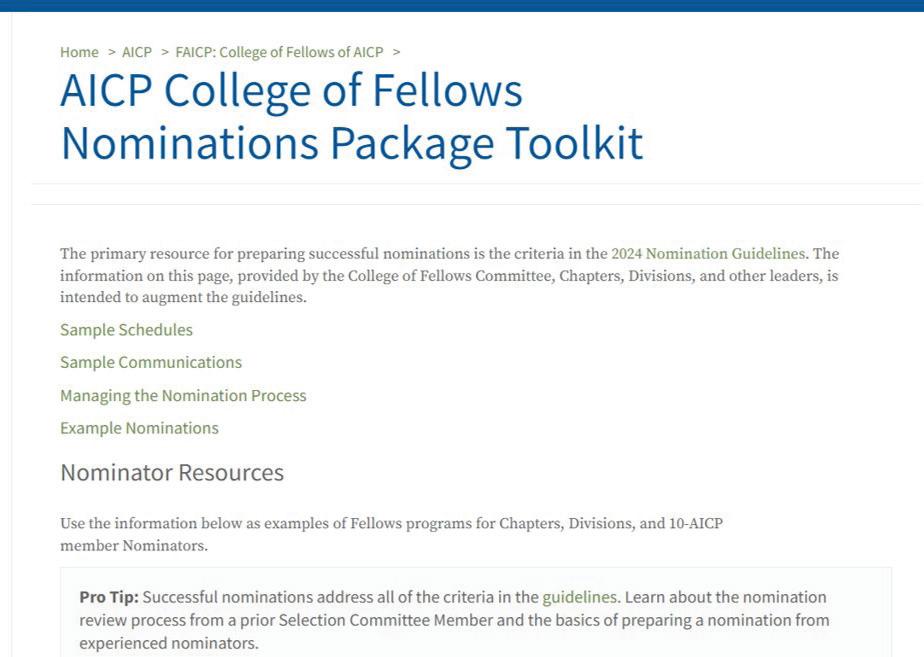
APA Florida, several other Chapters, and the Private Practice and Women and Planning Divisions graciously provided outstanding resources for the Toolkit. Merle Bishop, FAICP, also contributed as a College of Fellows Committee and APA Florida member.
The Toolkit’s wealth of information makes the nomination process easier to visualize and complete not only for nominees in the 2024 cycle, but AICP members at any point in their careers who want to plan ahead for a future FAICP nomination.
SUBMITTING YOUR FAICP NOMINATION
There are three methods of submitting nominations, all with corresponding resources in the Toolkit:
• Nomination by the Chapter President of APA Florida – View the Chapter’s open call for nominations and suggest a nominee with a brief description relative to the Primary Criteria by February 20, 2023
• Nomination by the Chair of one of APA’s 24 Divisions.
• Nomination by 10 individual AICP members, not including the nominee.

Nominations for the 2024 cycle are due to APA on August 30, 2023. Nominations require extensive time and effort, so start early and take advantage of the many resources to support your nomination.
Alissa Barber Torres, PhD, FAICP, CLTD, is a member of the AICP College of Fellows Committee; a member and former Co-Chair of APA Florida’s Equity, Diversity, and Inclusion Committee; and a Director at Large of the Orlando Metro Section of APA Florida. She can be reached at alissa.torres@ocfl.net
14 Winter 2023 / Florida Planning
EDI PARTNER SPOTLIGHT: Plan Hillsborough
ALSO HELP FOR THOSE STRUGGLING TO INITIATE EQUITY INITIATIVES
By Corrine Arriaga and Jarrell Smith
During the summer of 2022, APA Florida's Equity, Diversity, and Inclusion (EDI) Committee’s Communities and Partnership Subcommittee reached out to local, state, and national partners to gauge their efforts to weave EDI strategies into the fabric of their organizations.
The outcome of this process is to share this information with other entities and create a mechanism for highlighting varying EDI strategies. Additionally, if communities are struggling to identify EDI objectives, activities, measures, and targets, then this “Partner Spotlight” series can help introduce possible concepts to promote EDI initiatives.

Plan Hillsborough provides coordinated land use, transportation, and planning for the four local governments in Hillsborough County.
In reference to agency-specific EDI initiatives, Plan Hillsborough has focused efforts on recruiting and retaining a diverse workforce, educating employees on the importance of creating an environment where people are connected and share a sense of purpose, and encouraging leadership to demonstrate EDI principles. Please see the matrix that provides an overview of the noteworthy efforts undertaken by Plan Hillsborough.
Plan Hillsborough’s Planning for Equity webpage provides more detailed information on EDI initiatives undertaken by Plan Hillsborough, including, but not limited to, a series of recommendations for advancing agency practices beyond federal nondiscrimination requirements.
STRUGGLING TO INITIATE EDI INITIATIVES?
If your organization is struggling to begin the process of instituting EDI initiatives, one starting point can be to explore the best practices research institutions have identified. Research institutions are widely known for facilitating scientific collaboration, promoting continuous learning, and affording organizational flexibility.

One research institution that has implemented commendable activities in the realm of EDI, is the Massachu-
setts Institute of Technology. MIT recently published its Strategic Action Plan for Belonging, Achievement, and Composition. This plan supports local and institute-wide efforts that advance practices, systems, and behaviors that promote equity, value differences of opinion and origin, and establish conditions for productive disagreement that seek to unite individuals.
MIT has done an excellent job of creating a framework that can be used to initiate a successful EDI program. Each proposed objective within the plan has goals, metrics and measurements,
continued on page 16
Winter 2023 / Florida Planning 15
Plan Hillsborough's EDI Matrix
continued
timelines, and resources clearly outlined, along with outlining the individual responsible for overseeing the implementation of the specific objective. Individuals responsible for overseeing the objectives are expected to provide an annual update to the Academic Council and to a committee of faculty, staff, postdocs, and students. In addition, prioritization and progress toward each objective will be tracked via online resources, to further support accountability. Although one can argue MIT has substantial resources to assist in developing a robust EDI program, we can all examine how best to adopt a learning and effectiveness paradigm concerning EDI initiatives.
According to the article, “Getting Serious About Diversity: Enough Already with the Business Case” by Robin J. Ely and David A. Thomas, “... cultivating a learning orientation toward diversity—one in which people draw on their experiences as members of particular identity groups to reconceive tasks, products, business processes, and organizational norms—enables companies to increase their effectiveness.” Which organization does not want to increase effectiveness? Imagine the successes that can be shared at the annual progress meetings!



What EDI-related objectives is your organization implementing? Are there any specific activities, measures, targets, or lessons learned that your organization is implementing and would like to share?
Corinne Arriaga and Jarrell Smith are co-chairs of the APA Florida Equity, Diversity, and Inclusion Committee’s Communities and Partnerships Subcommittee. If you are interested in sharing your initiatives concerning EDI, please contact Jarrell Smith at linkedin.com/in/jarrellsmith or Corinne Arriaga at linkedin.com/in/corinnearriaga
About the Communities and Partnerships Subcommittee

The Communities and Partnerships Subcommittee is one of five subcommittees of the APA Florida Equity, Diversity, and Inclusion Committee. Currently, there are six members on the subcommittee who work toward building and strengthening partnerships.

WE ARE HERE
Across the country, you’ll find places where our innovative spark is generating ideas that strengthen communities. We’re reimagining everything from the ground up, harnessing the power of collaboration to achieve your goals and leave a legacy.
16 Winter 2023 / Florida Planning
[EDI
SPOTLIGHT
PARTNER]
from
page 15
© 2022 HNTB Companies. All rights reserved. Reproduction in whole or in part without written permission is prohibited. HC152
hntb.com
CHAPTER CPAT
VISITS EAST PALATKA
By: Ennis Davis, AICP
Last summer, APA Florida selected East Palatka as an initial Community Assistance Planning Team (CPAT) pilot project after their community leaders and residents reached out to ask for assistance in identifying revitalization and preservation strategies for the community.
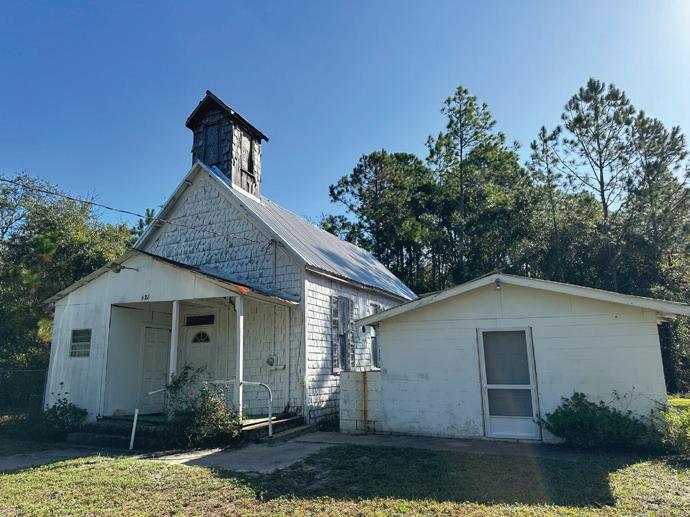
Located on the east side of the St. Johns River in Putnam County, East Palatka is a rural farming community that has traditionally been home to potato and cabbage farm laborers. Bisected by the St. Augustine-to-Palatka Trail, the community originated in the 19th century and is characterized by brick streets, small-frame residential dwellings, historic churches, a mature natural landscape, and agricultural fields.
On Nov. 4 -5, CPAT pilot members Adrienne Burke, AICP, Esq.; Ennis Davis, AICP; Devan Leavins; Josephine Medina, AICP; Kylie Pope; and Ray Spofford, AICP, explored East Palatka to learn more about the community. Hosted by resident Sharon Austin of HandN-Hand Community Services, the CPAT team toured the community and met with several residents to understand more about East Palatka’s history, culture, challenges, desires, and potential revitalization opportunities.
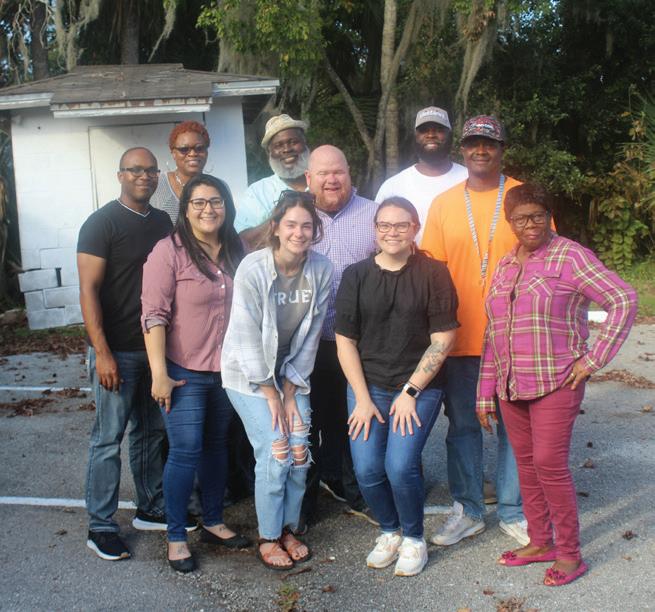
In a community where food is an integral part of the local culture and economics, fish fry and barbeque were communal meals historically linked to East Palatka. So, it was a treat when longtime residents Terry Major and Sheila Crawford prepared these local dishes for the CPAT members.
On Saturday, residents gathered for a community meeting and CPAT working session at the Mount Olive African Methodist Episcopal Church Annex. APA Florida Immediate Past President Wiatt Bowers, AICP, attended for the day. Based on community feedback, major neighborhood priorities focused on the need for a community center, park amenities for local children, historic preservation, affordable and mixed-income housing, and educational training for residents.
Early lessons learned by the pilot team include the need for further capacity building and partner organization collaboration as opposed to the traditional APA National CPAT model of visiting once and producing a report as a final CPAT deliverable.
ABOUT THE CPAT
In 2022, APA Florida launched a Community Planning Assistance Team (CPAT) program dedicated to offering statewide assistance to communities needing small- and large-scale projects through multidisciplinary teams of planning professionals.

This program intends to allow financially constrained communities to receive pro-bono assistance from professional planners with various backgrounds and expertise to address a diverse range of issues facing communities.

Visit florida.planning.org/cpat for more information about the project or to volunteer.
As a result, the CPAT team is currently working with affiliate organizations like the University of Florida Historic Preservation Program and the Florida Public Archaeology Network (FPAN) to document East Palatka’s historic African American cemeteries and to conduct a historic structures survey as a starting point for potential designation to the National Register of Historic Places, which in term opens the door for cultural preservation initiatives and additional equitable funding opportunities.
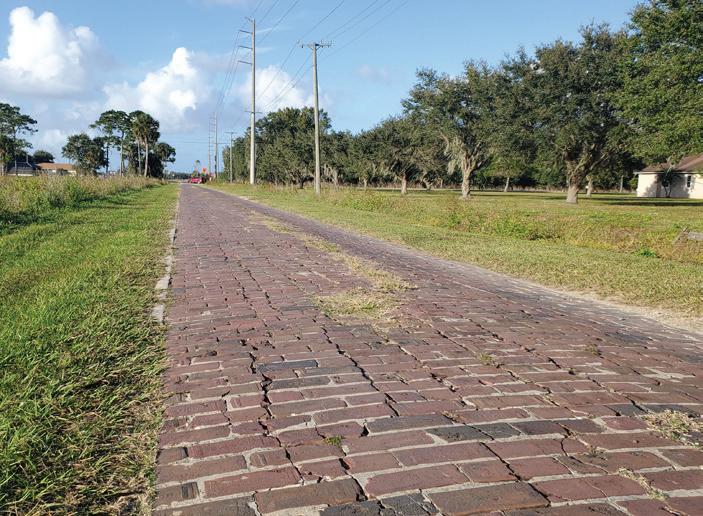
The team continues to coordinate and meet with local stakeholders and government agencies to understand better and open the door to additional economic and revitalization resources to address the community’s top priorities.
It is anticipated that the East Palatka CPAT Pilot project will be concluded in April. Stay tuned for additional details!
Ennis Davis, AICP, is the co-founder of the Community Planning Collaborative, LLC, that focuses on planning and historic preservation. He can be reached at ennis@planningcollab.com.
Winter 2023 / Florida Planning 17
Congratulations to Florida’s 42 Newest AICP Members
APA Florida is proud of our 1,737 members who have joined our ranks as members of the American Institute of Certified Planners (designated as AICP). We want to congratulate our most recent members as well as celebrate those members who have committed to maintaining their certification through the years. For more information on the November exam, study guides and groups, please visit the AICP Exam & Preparation page.
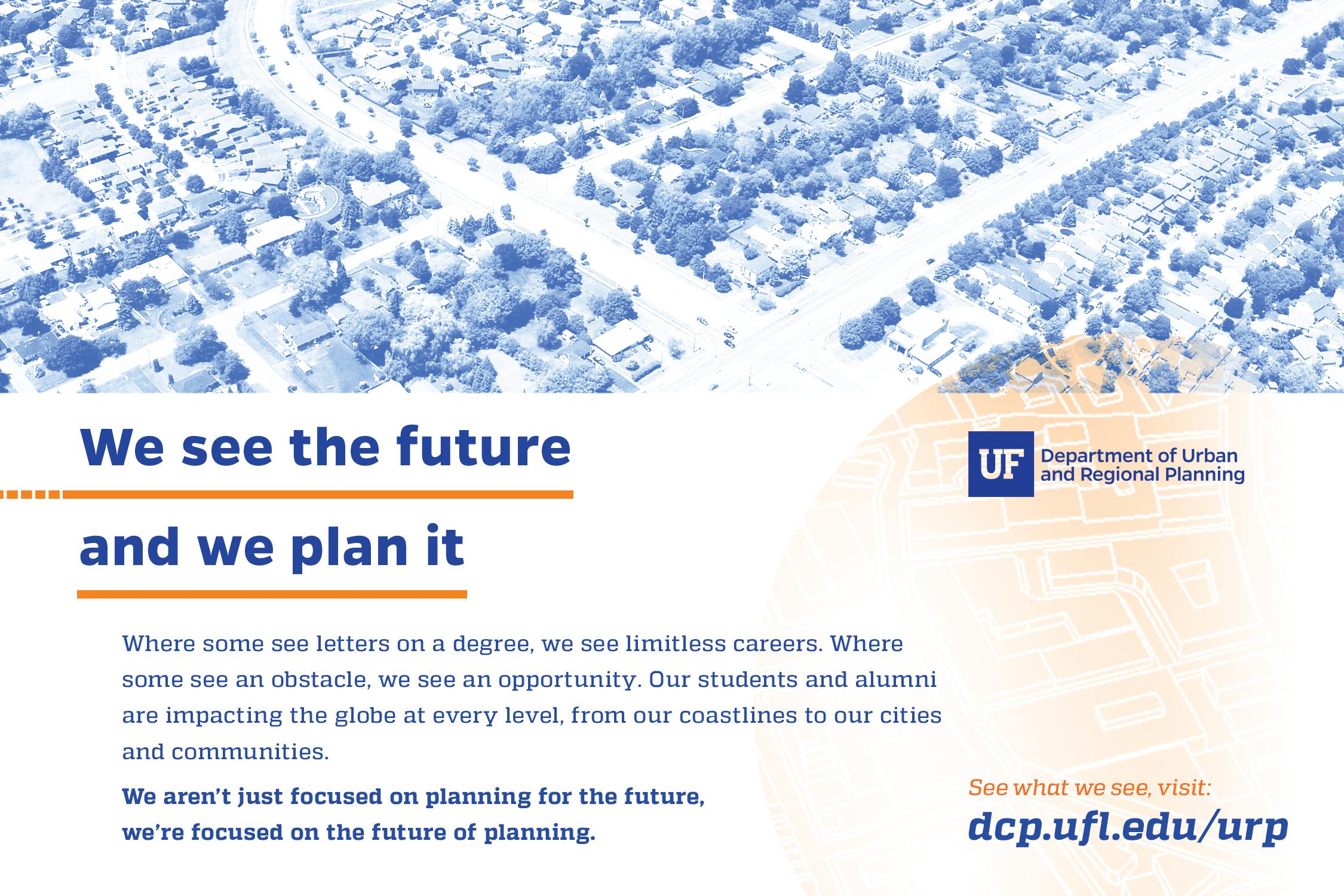
Congratulations to the following members who passed the AICP Certification Test in November 2022:
Julie Dick
Lisa Algiere
Mariana Arias Sanz
Jarice Barbee
Amanda Black
Sophia Brennan
Ryan Brown
Conor Campobasso
Chad Davis
Douglas Dombroski
Forrest Eddleton
Shelby Eldridge
Cameron Ennis
Blake Finnegan
Heather Glisson
Laurie Harari
Amanda Harig
Jonathan Howard
Kayla Huetten
Ivan Jimenez Urena
Cody Johnson
Emily Johnson
Taylor Jones
Dayna Lazarus
Rhea Lopes
Jennifer Lu-Chong
Joshua Macbeth
Frensky Magny
Nicole Mauntler
Audrey McGuire
Deandrea Moise
Andrew Morris
Jenifer Palmer
Tammy Reque
Laura Ruch
Lauren Sands
Amber Stonik
Andrew Uhlir
James Wenyon
Christopher Wolf
Quan Yuan
Kierra Zuokemefa
18 Winter 2023 / Florida Planning
A MESSAGE FROM THE NEW EXECUTIVE DIRECTOR
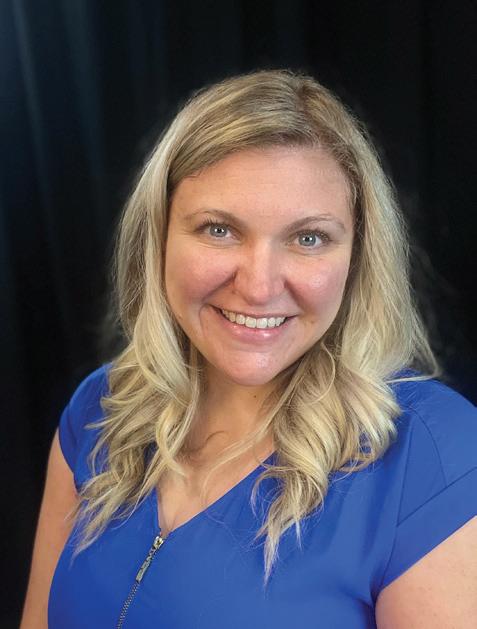

Stefanie Svisco
As I round out my first month as Executive Director, I am in awe of the passion and dedication planners possess to improve communities throughout Florida. I look forward to carrying on the organization’s mission for the months and years to come.
On Jan. 20, I had the pleasure of attending my first Executive Council meeting and virtually introducing myself to the board members that sit for the next two years. I have also had the chance to meet with some of our vice presidents one-on-one to connect and brainstorm ideas to continue the thriving work of APA Florida.
The chapter office is working full speed ahead on the upcoming Public Policy Workshop on Feb. 23-24, and the speakers are in their final preparations. You don’t want to miss this year!
We are deep into legislative committee meetings and are tracking the bills that could directly impact or help local communities and their planners, increase affordable housing and transportation spending, give tax incentives for historic preservation, and more. If you are not already reading it, make sure you check out our weekly Legislative Reporter, which should arrive in your email inbox each Friday. (They’re also on the chapter website!) If you are not receiving these emails and feel like this is in error, please let us know. As a note, session is set to begin on March 7.
Finally, the 2023 Florida Planning Conference behind-the-scenes planning is fully underway, and we will be rolling out more details soon on the schedule, registration, keynote speakers, and more. I hope to have the chance to meet each of you in person at FPC23 in Jacksonville! We are also finalizing hotel and conference space for the 2024 conference in Tampa.
As you can see, there is a lot going on, and there is a lot more to come!
I want to thank you all for welcoming me and offering support during this transition. I also want to thank Alex Magee, who has been gracious with her time to help me learn the ropes.
Please let me know how I can serve you. I look forward to working with you all to plan an even better Florida!
Stefanie
Winter 2023 / Florida Planning 19
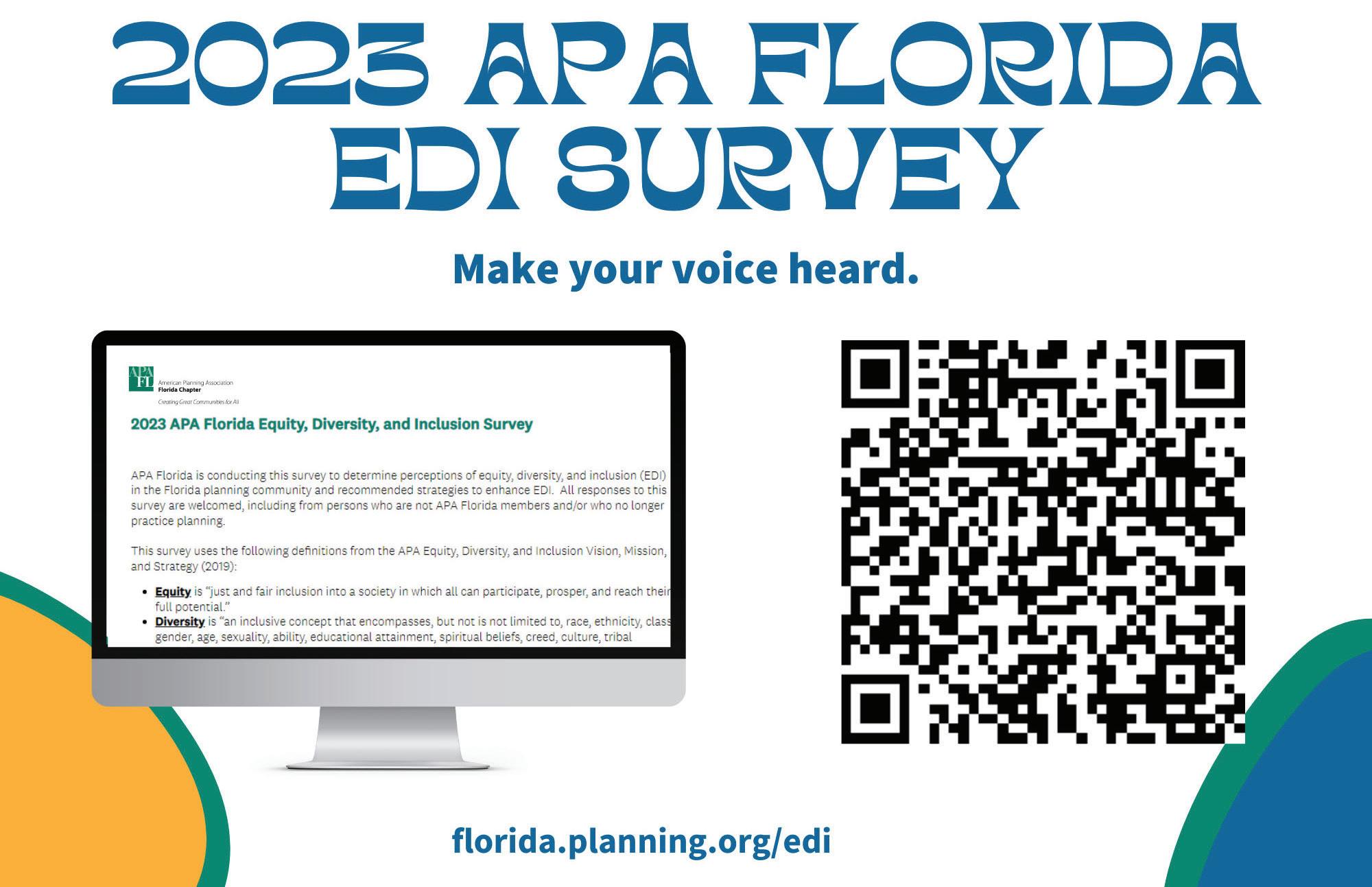
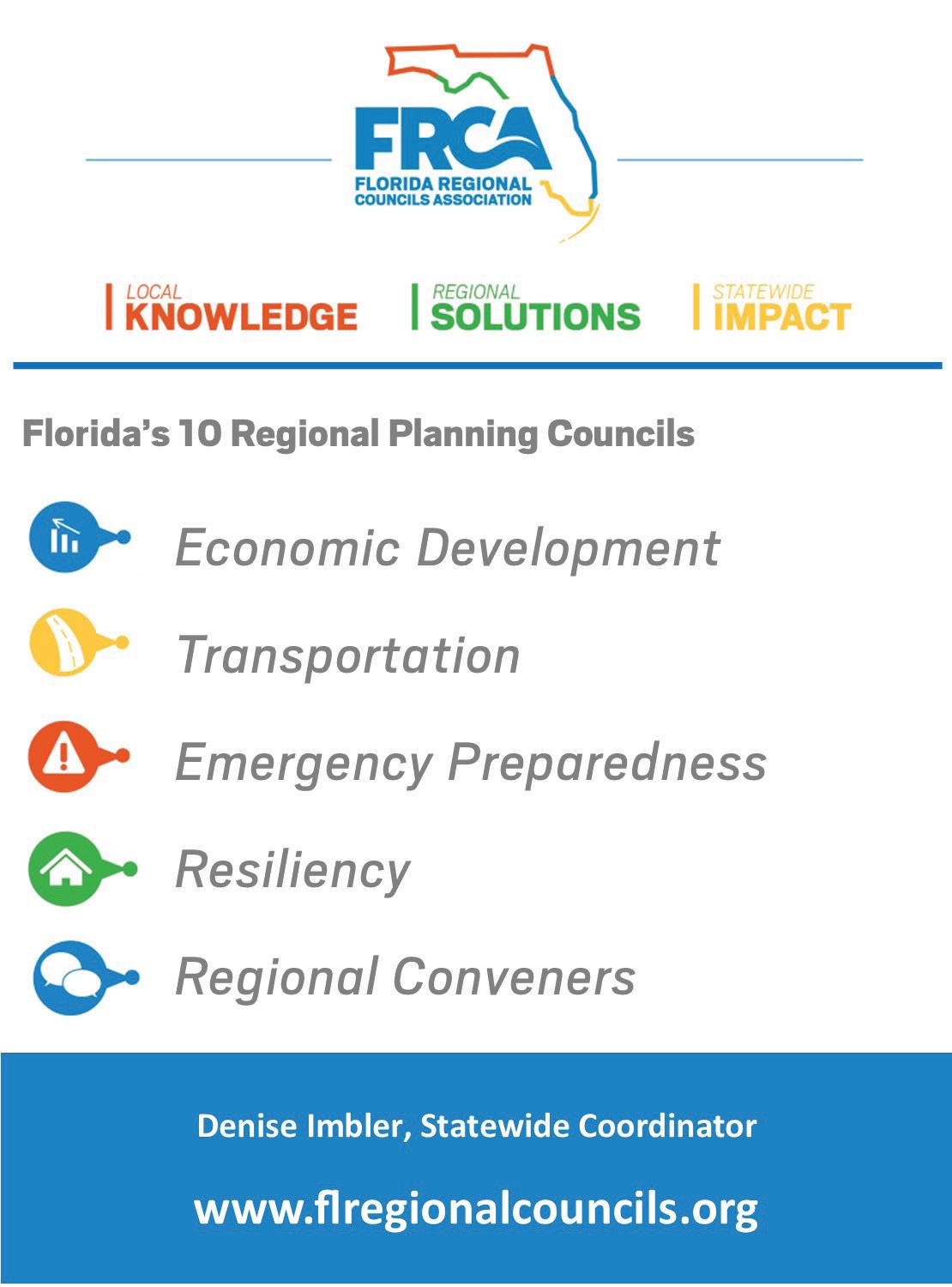
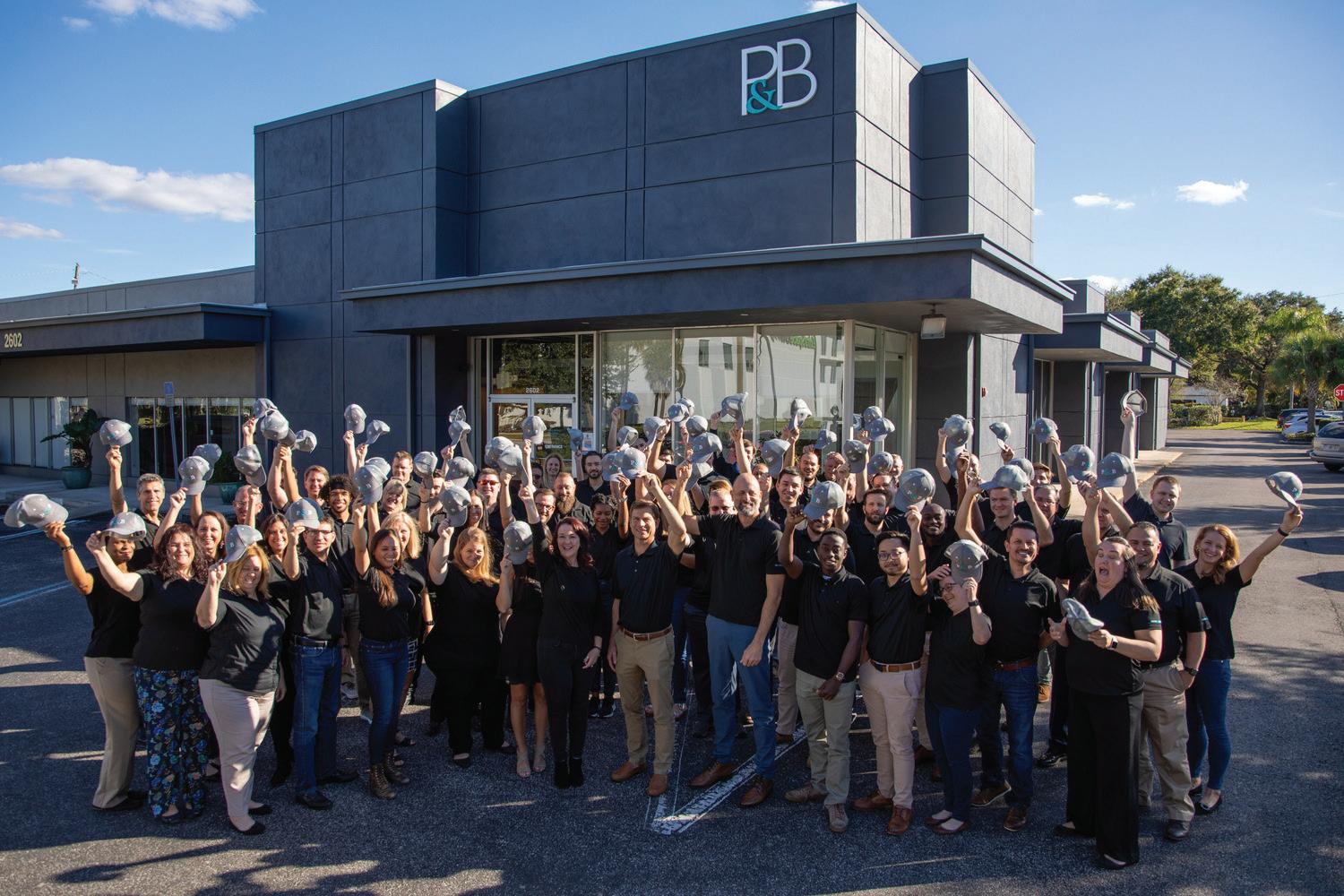

20 Winter 2023 / Florida Planning Poulos & Bennett provides full-service Design, Comprehensive Planning, GIS, Civil Engineering, and Construction Management for a wide range of projects for public and private clients. poulosandbennett.com 407-487-2594
florida planning conference 2023
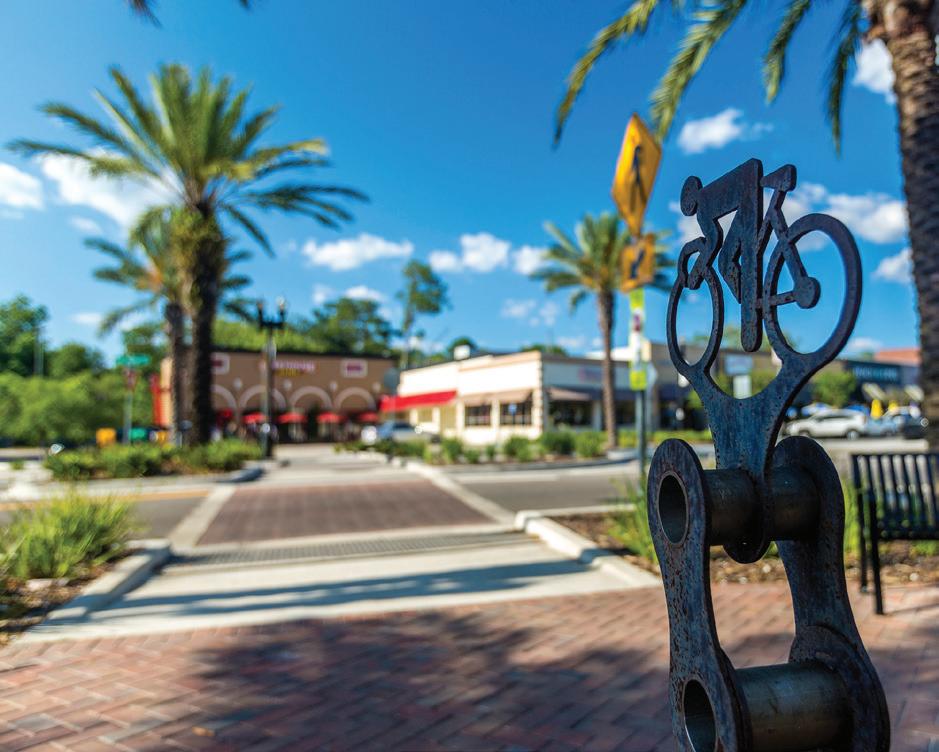
jacksonville l september 5 - 8, 2023 CALL

FOR PRESENTATIONS
Hello and welcome to Roots and Rivers! The First Coast Section is pleased to host the 2023 Florida Planning Conference in Jacksonville. We will be meeting September 5 – 8, 2023, at the Hyatt Regency Jacksonville on the riverfront! This year we call on you to create dynamic and interesting session proposals that will facilitate future-ready cities. Special attention will be paid to sessions that support equity, diversity, and inclusion within the planning profession and provide a “lessons learned” aspect for the enrichment of attendees. We have provided topics of particular interest below and welcome research projects at the university level from both professors and students that would be of interest to our membership and allied professionals.
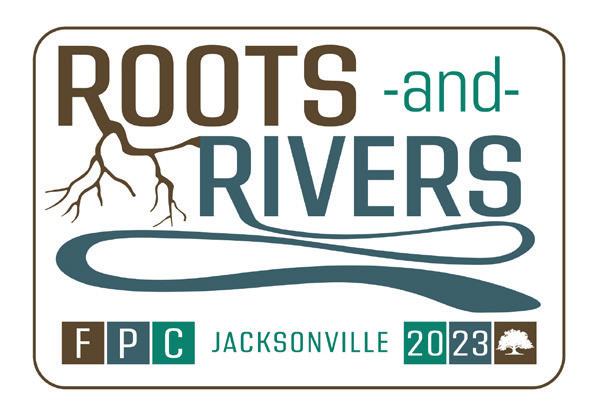

IMPORTANT INFORMATION
Session proposals are due by 5:00 pm EST on March 31, 2023.
APA Florida wants to support the planning community in developing innovative and practical approaches for planning in the public interest. We recognize the inequities of past planning practices, and our goal is to create inclusive, just, equitable, and sustainable communities. Like our Roots and Rivers, we draw upon the past to chart the path forward, connecting new ideas just as the water flows to various corners of our vibrant local community in Jacksonville. We encourage session submitters to provide a statement of how your proposed session contributes to advancing equity, diversity, and inclusion in planning in Florida. As part of this commitment, you are encouraged to submit sessions that have panelists of diverse identities, have topics that engage APA’s commitment to equity, and consider the equity implications of projects being featured. All session proposals should be for 60 minutes. Panel sessions are encouraged. All sessions must have at least two presenters.
Winter 2023 / Florida Planning 21
continued on page 22
[CALL FOR] PRESENTATIONS
continued from page 21
tracks
DOWN TO THE ROOTS
This track explores regulatory topics such as ethics, planning law, private property rights (climate change effects, case for eminent domain), moratoriums, and effective public engagement. The track may also include other current conversation topics such as 1st Amendment issues, code enforcement, grant and funding strategies, short-term rental regulation, and sign regulations.
NATURE & NURTURE
This track describes innovative strategies for equitable and inclusive planning solutions, including but not limited to, age-friendly and legacy communities, school and transportation planning, community engagement, ongoing housing issues in Florida, including missing middle housing and affordable and workforce housing, and economic development.
SEVEN BRIDGES
This track centers on equitable and inclusive placemaking and redevelopment, mobility, infrastructure, complete streets, sustainable communities, and planning for increased population growth.
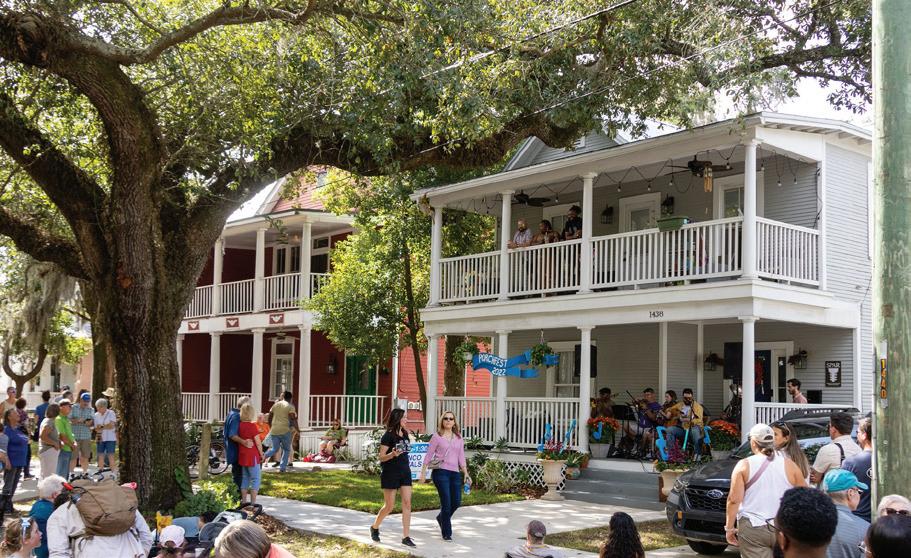
RIVER TO SEA
This track concentrates on community health and equity, park planning, wildlife corridors, green infrastructure, small town, rural planning, and urban and rural agriculture. Emphasis should be placed on equitable and inclusive projects, solutions, and outcomes.
STANDING WATCH
This track focuses on facility and resiliency planning. Topics covered may include military planning, coastal planning, floodplain management, planning for natural disasters, post-disaster recovery, declaration of emergencies, and emergency services
CHANGING TIDES
This track will zero in on emerging issues and trends in Florida and nationally, connections between land use and transportation, use of geographic information systems (GIS), planning with new technology, and technology solutions.
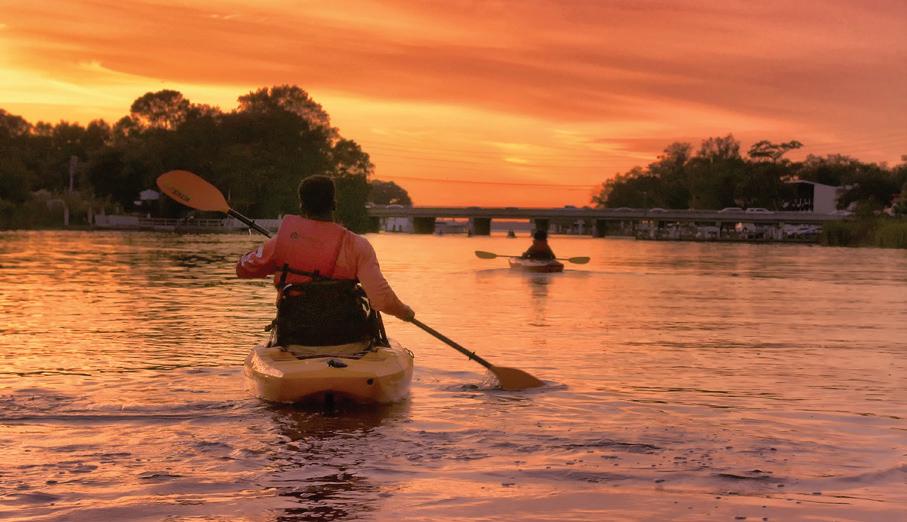
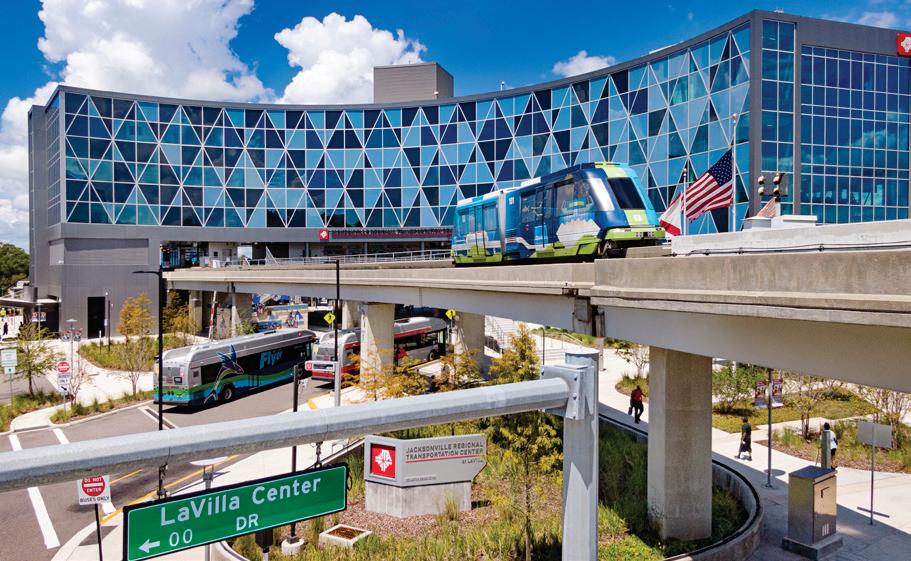
22 Winter 2023 / Florida Planning
A PROPOSAL Use the Conference Session Practice Form to fill in all required information and get approval from your panelists. Fill out the online form @ bit.ly/fpc23form 1 2
HOW TO SUBMIT
In
See You
Jacksonville!
Member Spotlight Q&A: Taco Pope, AICP
Where are you originally from?
I was born in Tampa, but my family relocated to Nassau County before I started school. Northeast Florida is my home.
What college/university did you attend?
My undergrad was through the University of North Florida, and my graduate degree was through Florida Gulf Coast University.
What is your current position? / Who is your current employer?
I am the County Manager for Nassau County.
What you would be doing now if you hadn’t chosen the planning profession?
I have no idea but, if we are going to dream, a charter boat captain in the Caribbean, maybe give scuba lessons on the side and practice the art of mixology in the evenings.
Are you a member of other planning or non-planning boards, committees, or organizations?
• Florida Association of Counties Trust, Board of Trustees
• Northeast Florida Regional Community Institute, Board of Directors
• American Institute of Certified Planners
• International/Florida City-County Management Association
• Florida Association of Counties/Florida Association of County Managers
What are your hobbies and interests?
Pretty much anything that involves the beach/water and being outside. I am a big fan of exploring Florida’s state parks and state forests.
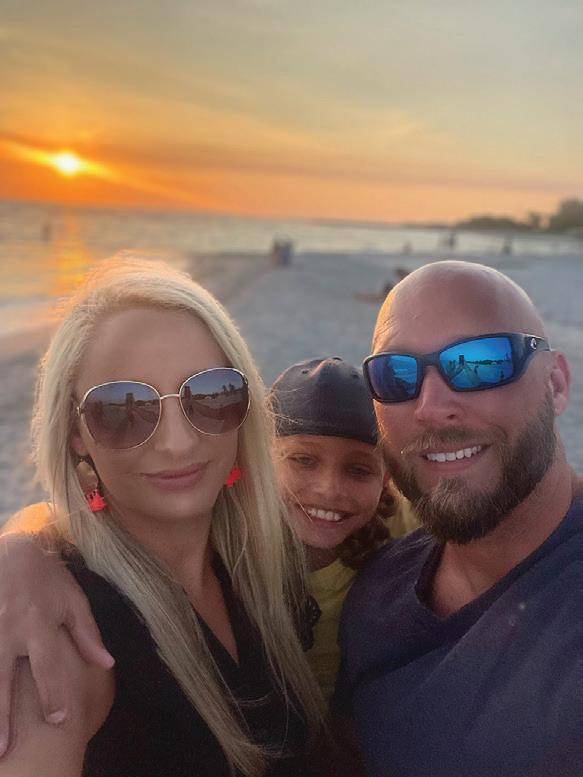
Ever had your 15 minutes of fame? If yes, tell us about it. I played rugby for a decade or so, first at UNF and then for a semi-pro team in Jacksonville, the Jacksonville Axemen. Along the way, I was selected to represent the US on the national rugby league team for a couple of years.
What have you gained or learned by being a member of APA Florida?
APA Florida offers an outstanding community for planners to collaborate and offers a collective voice for advocacy.
Do you have any advice for new graduates in your field/career tips?
I’d encourage new planners not to dismiss the idea of moving into local government management as a means of advancing their career. Like most planners, at some point you will likely have an opportunity to transition from public-sector planning work to the private sector. I made the call to stick with local government and start the transition from being a planning director to serving in city-county management. As a public sector planner, you can advance your career within local government and, at the same time, do great things in your own backyard that will have a positive impact on your community that is generational in scale.
Is there a particular state planning topic you’d like to comment on or feel fellow planners need to follow?
I may be a little biased but, in the same vein as my advice for new planners, if more planners were city-county managers, Florida would be an even better place than it already is! By training and practice, planners view things through a different lens than most folks. If we are honest, most of us planners are birds of a different feather, and that is a great thing! So, let’s leverage that unique perspective, take the helm in our local jurisdictions, and lead our communities into the future.
Winter 2023 / Florida Planning 23
continued on page 26
APA FLORIDA WORKING FOR YOU
2023 PUBLIC POLICY WORKSHOP & LEGISLATIVE SESSION
The 2023 Florida Legislative Session begins March 7, and our Legislative Policy Committee (LPC) is at work for you. Stay up to date with our weekly Legislative Reporter eblast. The LPC has developed a one-page handout for discussing APA Florida’s priorities with legislators, other organizations, and their staff. These priorities are part of a more comprehensive legislative platform that the Executive Committee and membership approved last fall. Don’t miss the 21st Annual APA Florida Public Policy Workshop on Feb. 23-24, 2023. Back by popular demand, APA Florida is hosting the workshop as an online event. This is the event to learn what pertinent policy changes may impact the planning community – from the national, state, and legal areas. Registration ends on Feb. 20. Register here
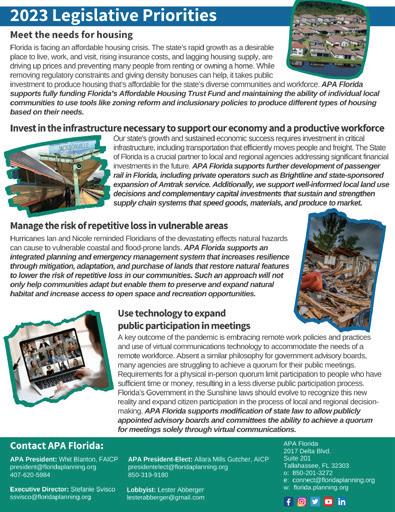
EQUITY, DIVERSITY & INCLUSION SURVEY
Every three years, APA Florida’s Equity, Diversity, & Inclusion (EDI) Committee surveys Florida planners on the current environment and strategies needed to achieve equity and diversity in our field and communities. All responses are welcomed, including from persons who are not APA Florida members and/or who no longer practice planning. Take the survey here
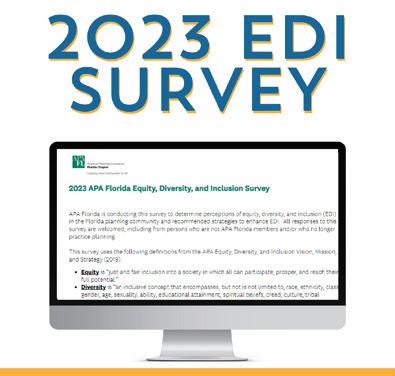
AICP EXAM DIVERSITY SCHOLARSHIPS
APA is once again offering AICP Certification Exam Diversity Scholarships for the upcoming May 2023 exam window. The deadline to apply is Feb. 17
2022 ANDRE ANDERSON MINORITY SCHOLARSHIP AWARDS
APA Florida is pleased to award scholarships to two outstanding, up-and-coming planners this year. Meet Howard A. Williams and Antonio Augello, the recipients of the 2022 Andre Anderson Minority Scholarship Howard received $2,000, and Antonio received $1,500 to apply toward education expenses. Meet these future planning stars here

THANK YOU, ALEX!
After 15 years of service, and a career in the planning community throughout Florida, APA Florida Executive Director Alex Magee retired on Dec. 30. Read Alex’s thoughtful message that recaps her successful tenure, and gives a glimpse of her retirement goals. Hint: it involves waders.
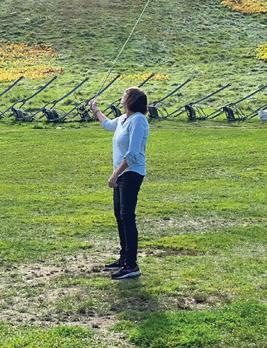
WELCOME THE NEW APA
FLORIDA EXECUTIVE DIRECTOR
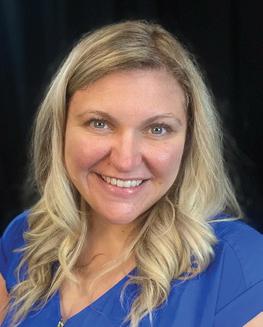
Vice President of Professional Development Henry Bittaker, FAICP, just began his first AICP Exam Prep series of the year. Sponsored by the chapter, and hosted by the Treasure Coast Section, Henry continues to provide free AICP preparation courses for anyone signed up to take the exam. Each year Henry hosts two online preparation series – August to October and February to April – as well as an allday crash course at the Florida Planning Conference.
The APA Florida Executive Committee is pleased to welcome Stefanie Svisco as its new Executive Director. Stefanie comes to APA Florida from The Florida Bar, where she worked as a Program Administrator for The Business Law Section, overseeing the section’s fundraising, conference and event planning, and member activity campaigns. She has already begun working for our 3,000-member APA Florida from its Tallahassee chapter office and is hitting the ground running. Read more about our new team leader here
continued on page 26
24 Winter 2023 / Florida Planning
AICP EXAM SPRING TRAINING
ANKUDOWICH JOINS THE FLORIDA HOUSING COALITION
Ali Ankudowich, AICP, is now a Technical Advisor with the Florida Housing Coalition, following five years of community planning work in the private sector.
In her new role, Ali assists local governments throughout Florida with land use and regulatory strategies to increase housing that is of quality, safe, and affordable. She remains based in Tampa.
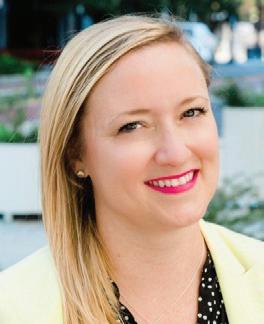
BERNHART NAMED PASCO PLANNER
Former APA Florida Student Representative Bob Bernhart has been tapped by Pasco County as a Planner I. Bob had previously served a stint with the Hillsborough County Planning Commission as a fellow while he was earned a Master in Urban and Regional Planning from USF.
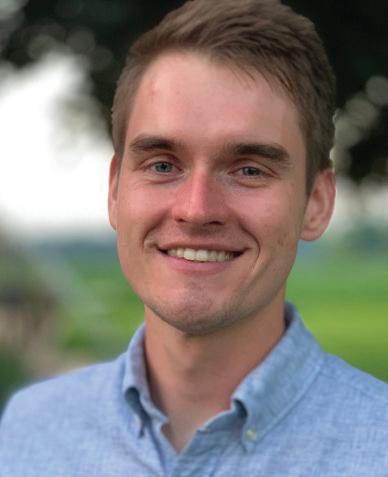
BURKE AND DAVIS FORM HISTORIC PRESERVATION CONSULTING FIRM
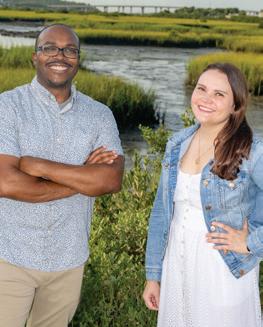

Adrienne Burke, AICP, Esq., and Ennis Davis, AICP, have teamed to create Community Planning Collaborative, LLC, a planning and historic preservation consulting practice. CPC’s purpose is to elevate the voices and culture of those traditionally excluded from urban planning, land use, and zoning through community-led, history-based planning solutions. Services include historic preservation planning, comprehensive planning, and land development regulations, history-based placekeeping strategies, historical research, community engagement, and many others.
Adrienne has a J.D. and Master of Historic Preservation from the University of Florida, an undergraduate degree in history from the University of Virginia as well as 15 years of experience in local government planning. Ennis has a Bachelor of Architecture from Florida A&M University and 20 years of experience in private sector planning and real estate development.
USF ADDS DICKERSON AS VISITING PROFESSOR
HANSON JOINS THE PLANNING COLLABORATIVE
Carly Hanson, a recent FSU planning school graduate, has joined the planning collaborative (TPC) as a Planner. Carly is currently working as a contract planner to Mexico Beach in addition to other private development work. A resident of Bay County, she is involved with many community organizations and is eager to get involved with APA Florida
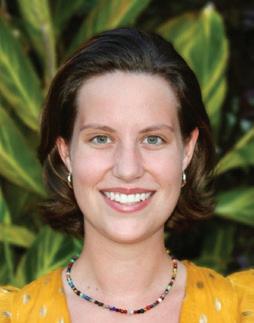
LANE SELECTED AS EUSTIS DEVELOPMENT DIRECTOR
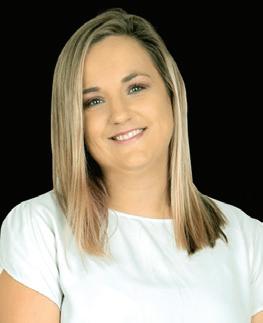
Mike Lane, AICP, was appointed as the new Director of Development for the City of Eustis. Mike has more than 32 years of planning and development services experience, 22 years of that being in the Florida Panhandle. He previously worked as Panama City’s Development Services Director for 11 years.
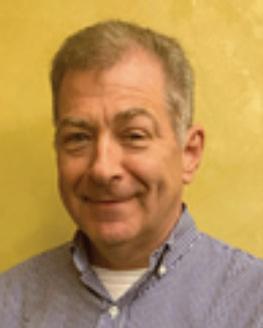
Mike earned a Bachelor in Community and Regional Planning from Southern Mississippi and has served as a member of the American Institute of Certified Planners since 1995. During his time with Panama City, Mike was also the city’s liaison for their planning commission and managed the city’s retail recruitment strategy to entice retailers and commercial developers to the area.
LIBES PROMOTED TO VICE PRESIDENT
Lindsay Libes, AICP, was named as WGI’s Vice President of Civil Engineering. In her new role, Lindsay is responsible for overseeing WGI’s civil engineering division, which includes more than 80 employees spread across 16 offices in five states.
She has been with WGI for her entire 15-year career.
NIEVES-RUIZ WINS DON QUIJOTE AWARD
APA Florida Orlando Metro Section Chair Luis Nieves-Ruiz, FAICP, received the Don Quijote Award in the Professional of the Year Category. The most prestigious award for Hispanic professionals in Central Florida, this accolade recognizes individuals that exemplify the qualities of the classic literary character: vision, courage, and community impact.
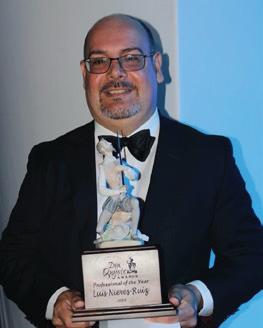
The University of South Florida named Amber Dickerson, AICP, as a visiting professor for its MURP Studio Courses. A co-founder of the firm Urban Planning Innovations, Amber plans to give students a real-world planning experience with community-engaged learning techniques. continued on page
A 2022 AICP Fellow, Luis’s professional work has enhanced economic development, regional food systems, and community revitalization. His exceptional leadership includes many years of volunteer service to underserved communities and initiatives to diversify the profession. Luis holds a Master of Regional Planning degree from Cornell University and serves as Director of Economic Development for the East Central Florida Regional Planning Council in Orlando, Florida.
Winter 2023 / Florida Planning 25 APA Florida PLANNERS
THE MOVE
ON
26
WORKING FOR YOU
continued from page 24
GREAT PLACES IN FLORIDA AWARDS
APA Florida leaders were on hand to award the 2022 Great Places in Florida People's Choice Award to the Bayshore Drive community in unincorporated Collier County. Congratulations to the entire Collier County community! Read about how Bayshore Drive was the top vote-getter here
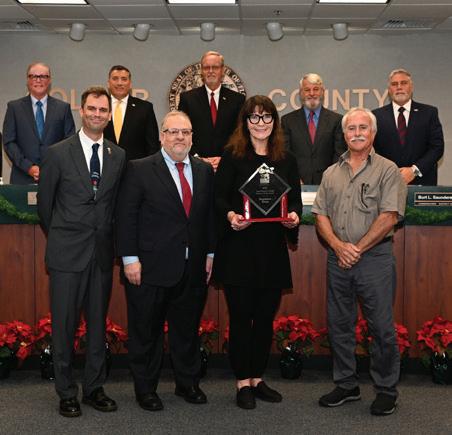
MEMBERSHIP GRACE PERIOD
In response to APA Florida’s request, APA has agreed to work with members affected by Hurricanes Ian and Nicole to extend the dues grace period. If you would like to request an extension for your APA dues payment, please get in touch with Karl Schmidt at kschmidt@planning.org
WELCOME 2023 STATEWIDE OFFICERS
Meet and get in touch with your 2023 APA Florida Executive Committee members and learn about the business they conduct on your behalf, both locally and statewide. You can always reach out to your statewide officers here
[Q&A] SPOTLIGHT
continued from page 23
Directly related, Home Rule is vital. I would encourage planners to advocate for the ability of local jurisdictions to apply public policy crafted in the unique context of each locality. Home Rule allows our counties, cities, and towns to leverage their uniqueness of place, maintain their identity, capitalize on opportunities, and, at the same time, create more livable communities for their citizens. While there are certainly public policy areas of State interest that justifiably warrant preemption of local authority, by its nature, public policy related to urban planning and land use is not universal and is subject to the context of placeeach jurisdiction is different.
Do you have a planning or personal achievement to discuss?
I will take this opportunity to say that no matter how big or small your planning initiatives are, submit them for regional and state awards. It isn’t about vanity; it’s a medium for sharing great ideas with your colleagues. If your team is doing something cool, I want to learn about it. Also, good ideas and clever solutions come in all sorts of packages so don’t stress if your work doesn’t have all the fancy window dressing, it’s the content that matters.
[PLANNERS] ON THE MOVE

continued from page 25
WOHLITKA ESTABLISHES CONSULTING FIRM
Erin Wohlitka, MURP, has started her own planning consultant firm EKW Planning. Erin has gained 10+ years of public and private sector experience along the Treasure Coast with both current and long-range planning and zoning projects. She currently serves as an at-large member of the APA Florida Treasure Coast Section.
She has received a Master in Urban and Regional Planning from Florida Atlantic University and a Bachelor in Political Science and International Affairs from Florida State University. Immediately upon graduating, Erin began working for the City of Palm Beach Gardens as a senior planner and has since worked for Urban Design Studio, and most recently, the City of Stuart as their Acting Director of Development. Erin’s new firm will support public and municipal entities as well as private sector clients.
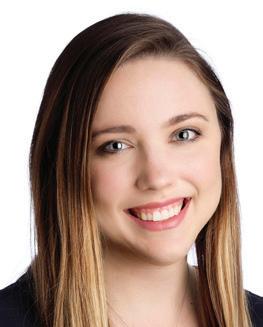
26 Winter 2023 / Florida Planning [APA]
[CONSULTANTS] DIRECTORY
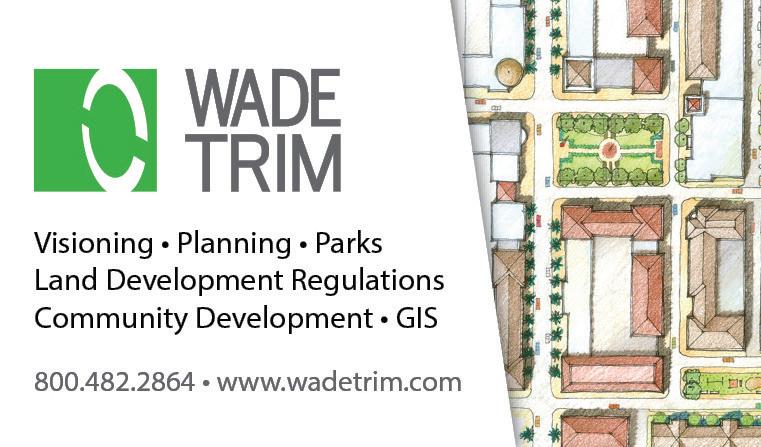

Advertise in the Consultants Directory









The Consultant Directory is a fitting place to showcase your firm. $250 buys space for a year in the newsletter (four issues) plus inclusion in our web-based consultant directory. Display ads to promote your business, conference, projects and more are available. Contact the Chapter office at 850-201-3272 for rates and details.
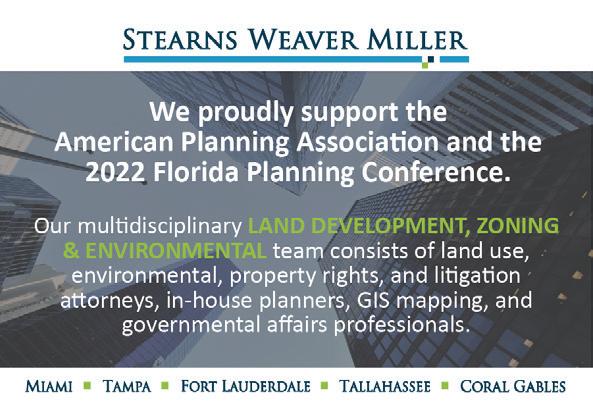
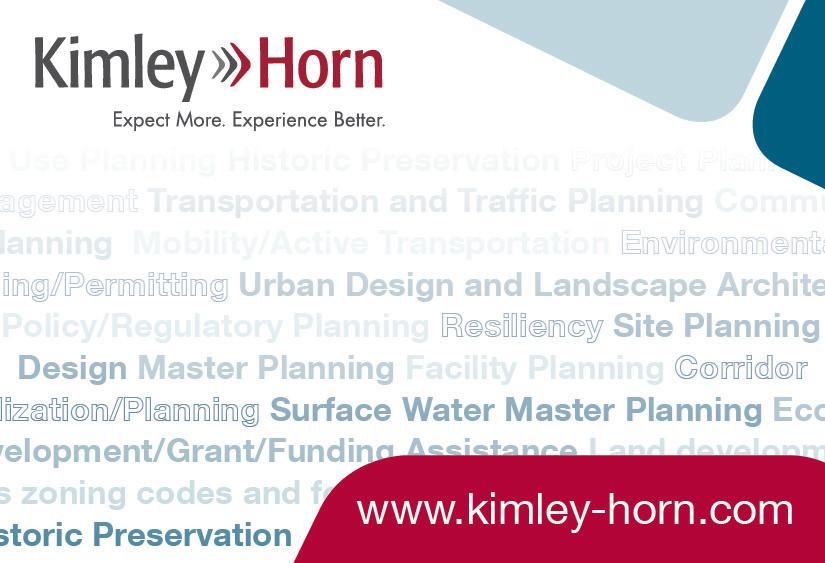
In a Livable Community, people of all ages can make their town or city a lifelong home Learn about what’s happening in Florida. Contact Laura Cantwell at lcantwell@aarp org
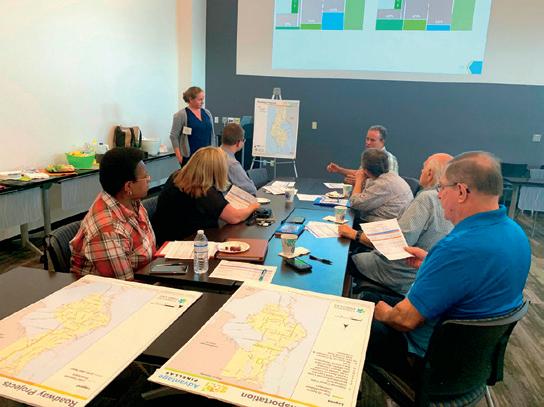
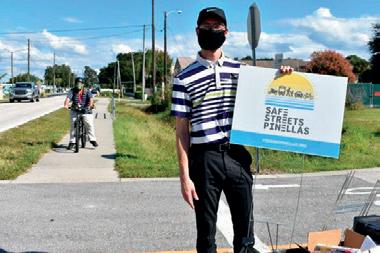

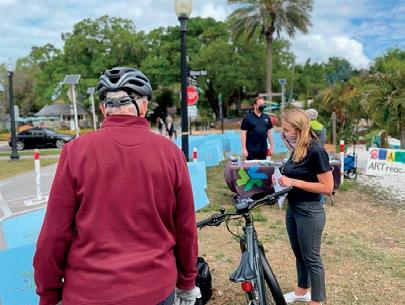
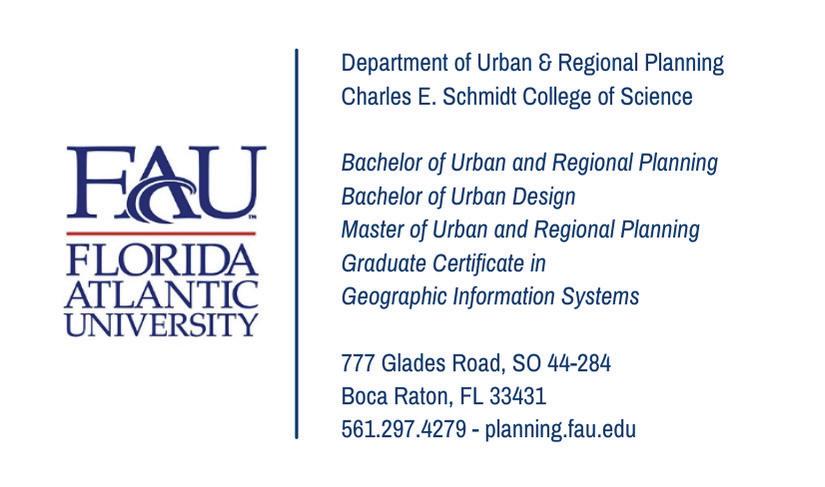


Winter 2023 / Florida Planning 27
Use geographic information system (GIS) technology to determine how, where, and when your designs can have the greatest impact to improve quality of life. Learn more, visit esri.com/APA Prioritize the Human Element in Designing Your Neighborhood Creating great community places. Planning | Urban Design Landscape Architecture Economics | Real Estate gaiconsultants.com/communitysolutions BRINGING PEOPLE TOGETHER TO CREATE A BR GHT FUTURE ForwardPinel as org n F or da s most dense y popu a ed coun y change s constan Through v s on eadersh p and comm ment F d P p p p q t b d h hy th p t y t t p h th d f d d dy y Ideas transform communities hdrinc.com Tallahassee Office Telephone: 850 224 7332 dat@theriaquelaw com Trial Appellate Planning and Land Use Law Administrative Comprehensive Plans Land Development Codes Orlando Office Telephone: 407 347 5388 sbs@theriaquelaw com www theriaquelaw com Our purpose is to inspire people to be outside and engage in the community around them. Arizona Florida | Georgia North Carolina Texas www.rviplanning.com Urban and Regional Planning Program PAB-Accredited Master of Science (M S ) No GRE Requirement ccie ucf edu/public-administration Urban Campus at UCF Downtown We see the future and we plan it dcp.ufl.edu/urp Helping Power Florida’s Future www.vhb.com Ralph S. Bove, Jr. Vice President Florida Planning and PD&E Studies Group Leader Volkert, Inc. 2300 Maitland Center Parkway Suite 320 Maitland, FL 32751 www.volkert.com Direct: 321.274.4777 Cell: 321.297.6812 ralph.bove@volkert.com
[THANK YOU] TO OUR ANNUAL SPONSORS
[FLORIDA] PLANNING
Published by the Florida Chapter, American Planning Association, the Florida Planning digital magazine has a current circulation of 3,000 members, subscribers and other readers. Four issues are published a year.

CHANGES OF ADDRESS
For APA members, Send to:
Member Records Department

American Planning Association
205 N. Michigan Ave., Ste. 1200 Chicago, IL 60601
Fax: 312-786-6700 or log onto www.planning.org/myapa
ARTICLES
Florida Planning welcomes articles, announcements, letters, pictures and advertising. Call 850-201-3272 regarding articles. The next issue will be published May 2023.
DEADLINES
Article deadlines are generally four weeks prior to publication. Ad deadlines are generally two weeks prior to publication. Consult the editor for any exception to this schedule.
ABOUT THE CHAPTER
APA Florida is a non-profit organization funded through membership dues and fees. Contributions are also welcomed for general purposes and earmarked programs. Please note that contributions are not tax deductible.
For news and information on chapter concerns, visit the APA Florida website at florida planning.org
APA Florida
2017 Delta Boulevard, Suite 201 Tallahassee, FL 32303
Phone: 850-201-3272
Fax: 850-807-2576
[UPCOMING] EVENTS
MARCH 3: MAIN STREET AFTER COVID: LESSONS LEARNED ON DESIGN AND LAND USE
Webinar. Host: Planning Webcast Series. This webinar will present the findings of a multiyear research project on this topic. Working with funding from the Massachusetts Institute of Technology’s Department of Urban Studies & Planning, we set out to see what these small downtowns would need in the future to grow and thrive. Information here Free. 1.5 CM
MARCH 9: ACCESSING INFRASTRUCTURE FUNDS FOR HOUSING
Webinar. Host: Florida Housing Coalition. The presenters will address the two housing infrastructure trust funds for the Wastewater Grant Program and the Resilient Florida Grant Program. Learn about funding available for water, sewer, road, and more types of infrastructure. The presenters will explore best practices to reserve infrastructure for affordable housing as found in the SHIP Incentive Plan framework. Information here Free
MARCH 26-29: NATIONAL BIKE SUMMIT 2023

Online & Washington DC. Host: The League of American Bicyclists. The Summit in D.C. will feature in-person workshops, mobile discussion groups, opportunities to ride, and networking events as we gather advocates from around the country building a Bicycle Friendly America for everyone. All Summit sessions/panels, plenaries, and keynote speakers will be streamed online for in-person and virtual attendees. Speakers will have the option to participate from anywhere in the country and from the Summit venue in DC. Information here
APRIL 1-4: NATIONAL PLANNING CONFERENCE
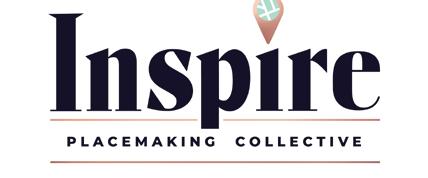
Philadelphia & Online. Host: APA. NPC23 is your ticket to connect with your professional community. Join your peers in Philadelphia or online and tap into an inspiring network that will help you analyze, imagine, and plan for the future. The conference program is focused on content developed through peer discussion and research into areas most likely to be agents of change in the planning profession. Information here CM credits available.
APRIL 17-20: INTERNATIONAL TRAILS SUMMIT


Reno, Nev. Host: American Trails & the Professional Trail Builders Association. This exciting new collaboration gathers trail and outdoor recreation enthusiasts and professionals representing all corners of the professional trails and outdoor recreation industry. The Summit will include more than 60 educational sessions covering a broad range of issues, including nationally and internationally prominent presenters, informative and interactive workshops, a state-of-the-art Exhibit Hall, and a wide array of national training leaders. Information here
For more information on these and other APA Florida events, please visit florida.planning.org/calendar/
THE DATE
The Florida Planning Conference will meet in Jacksonville from Sept. 5-8, 2023 Bookmark floridaplanningconference.org for all the latest news and updates.
SAVE

























































































